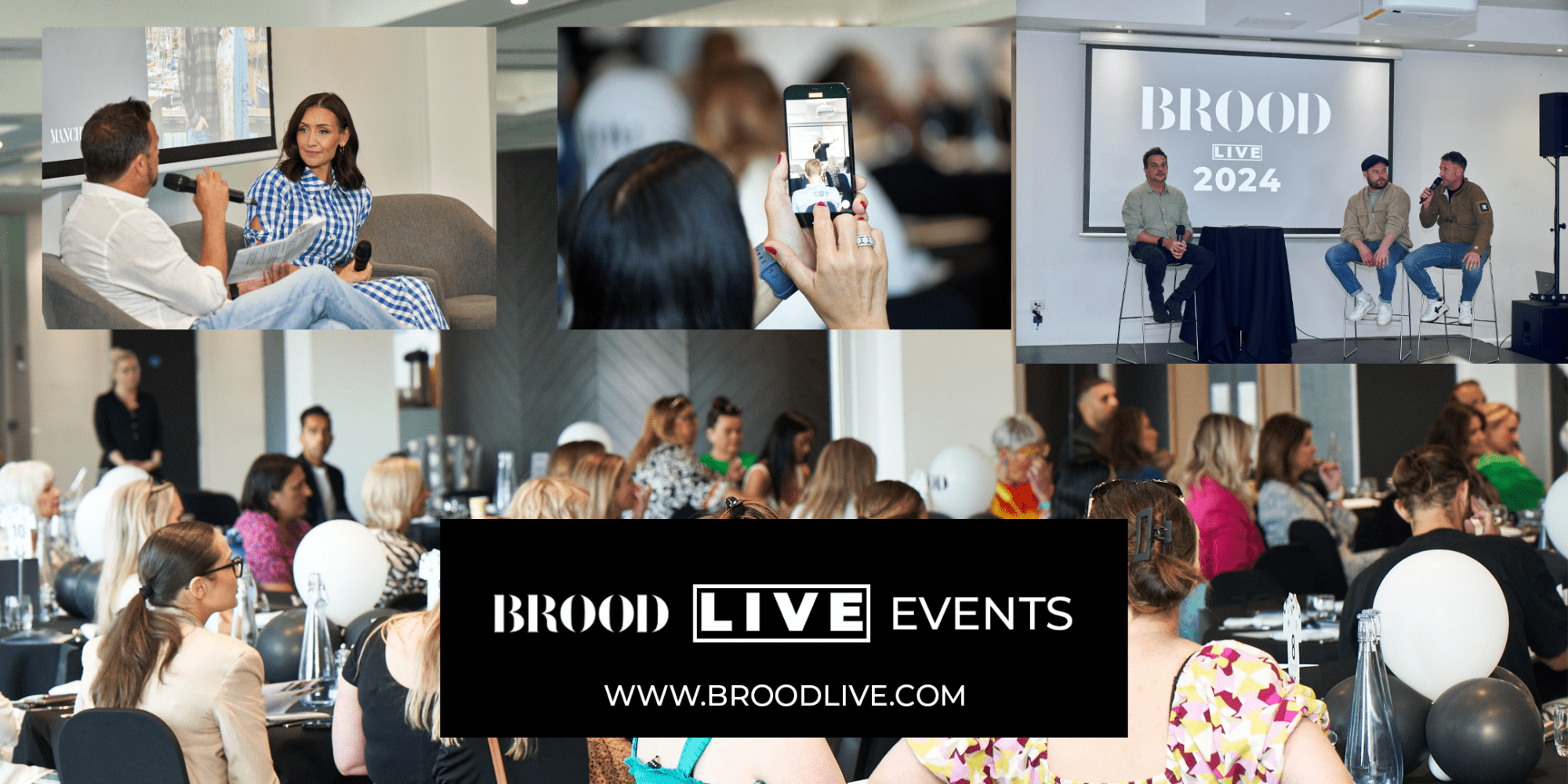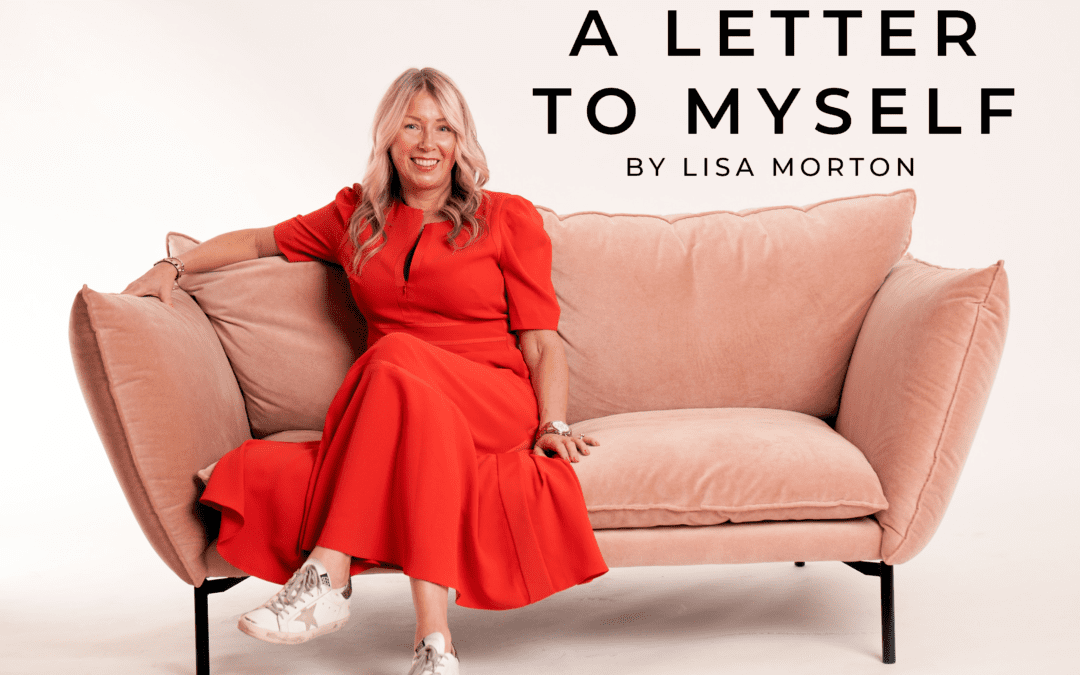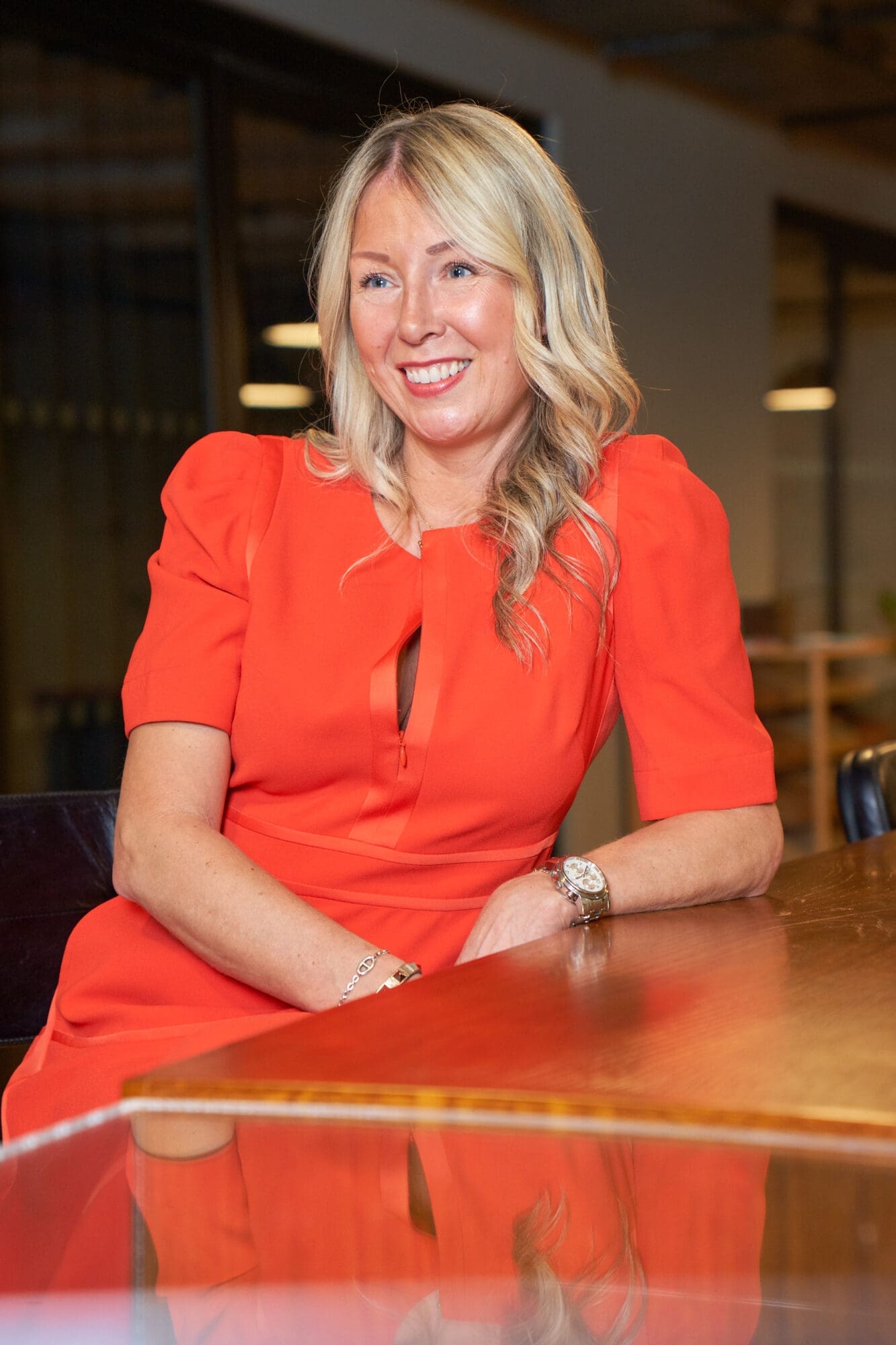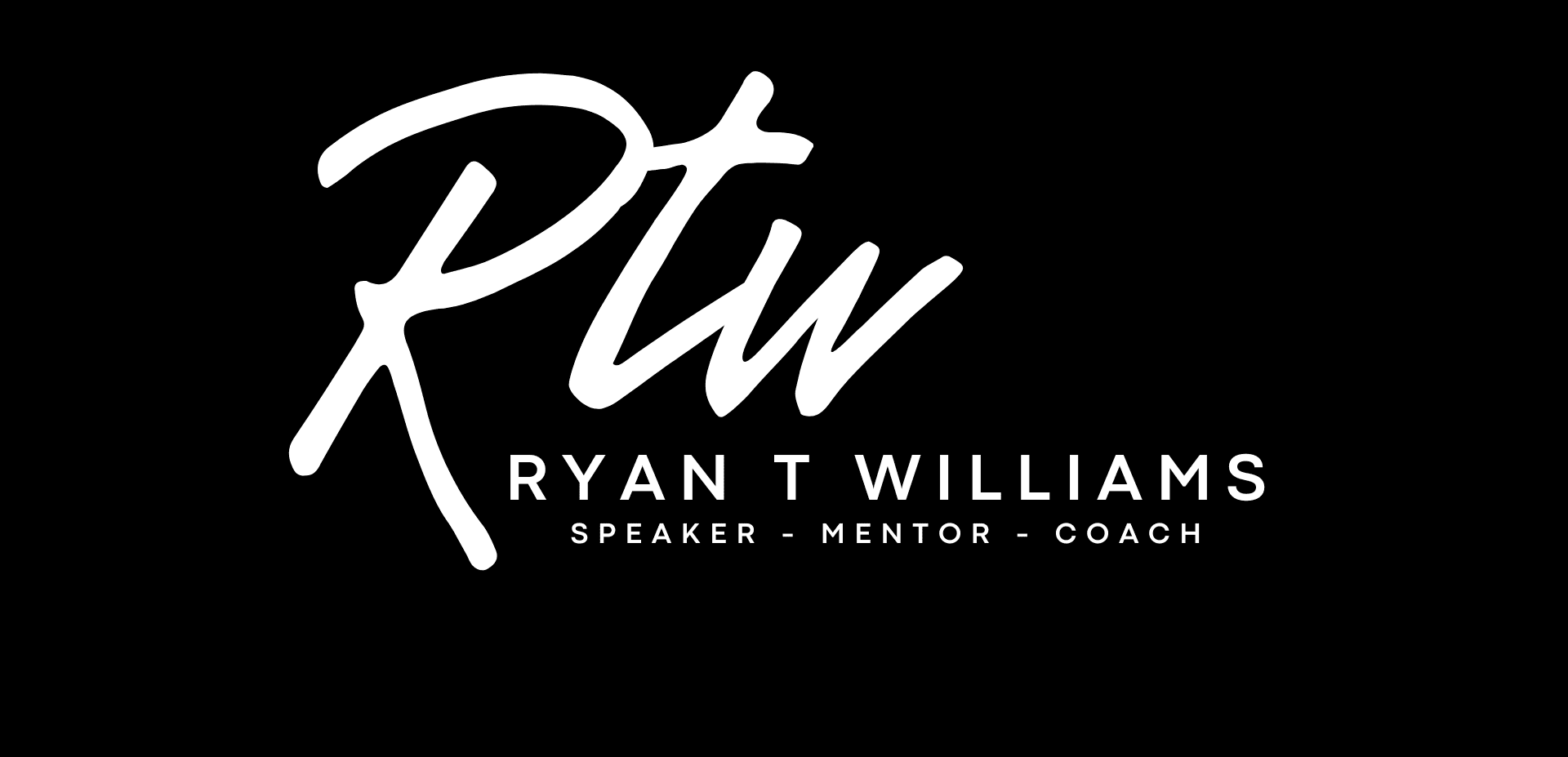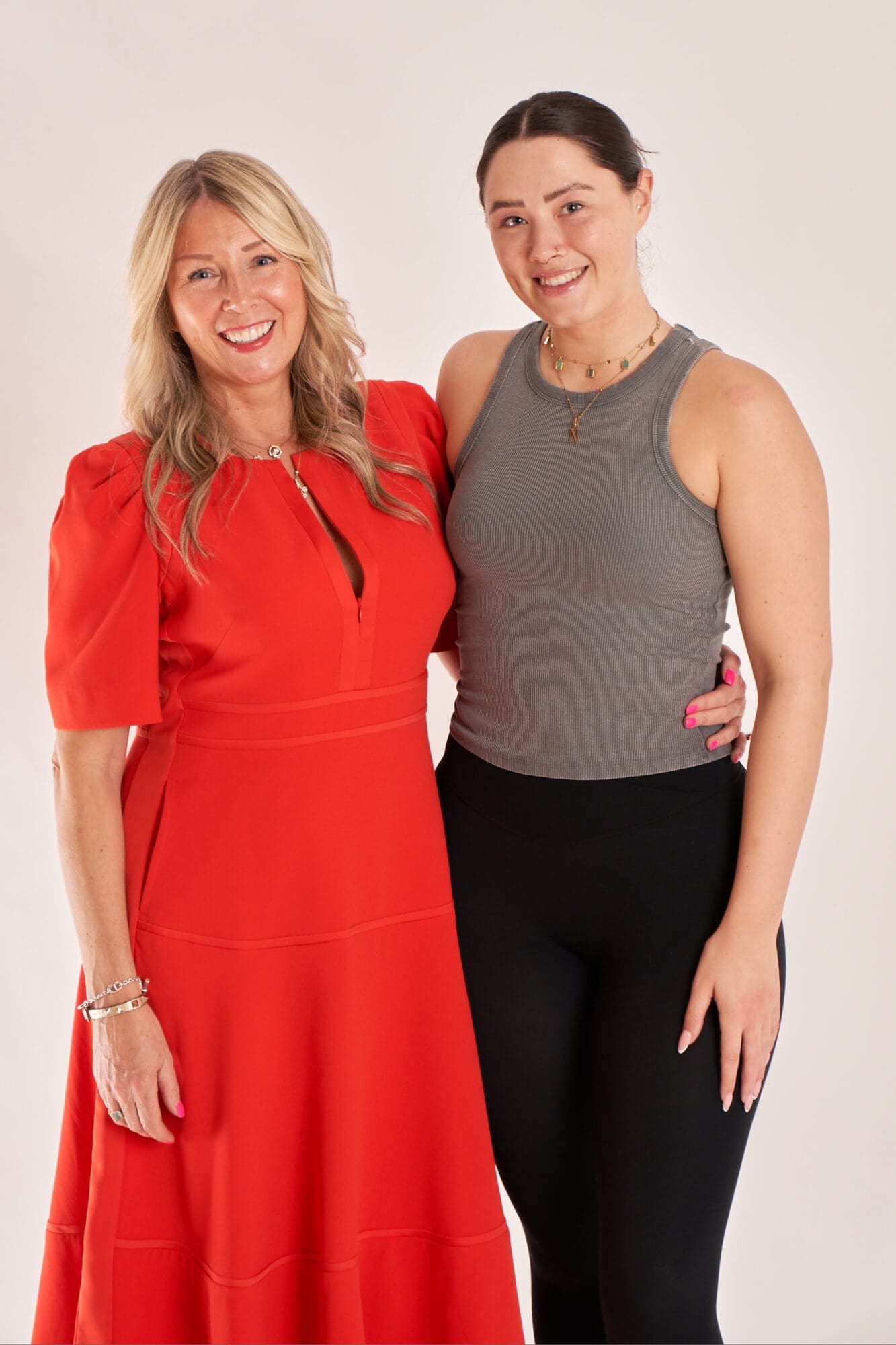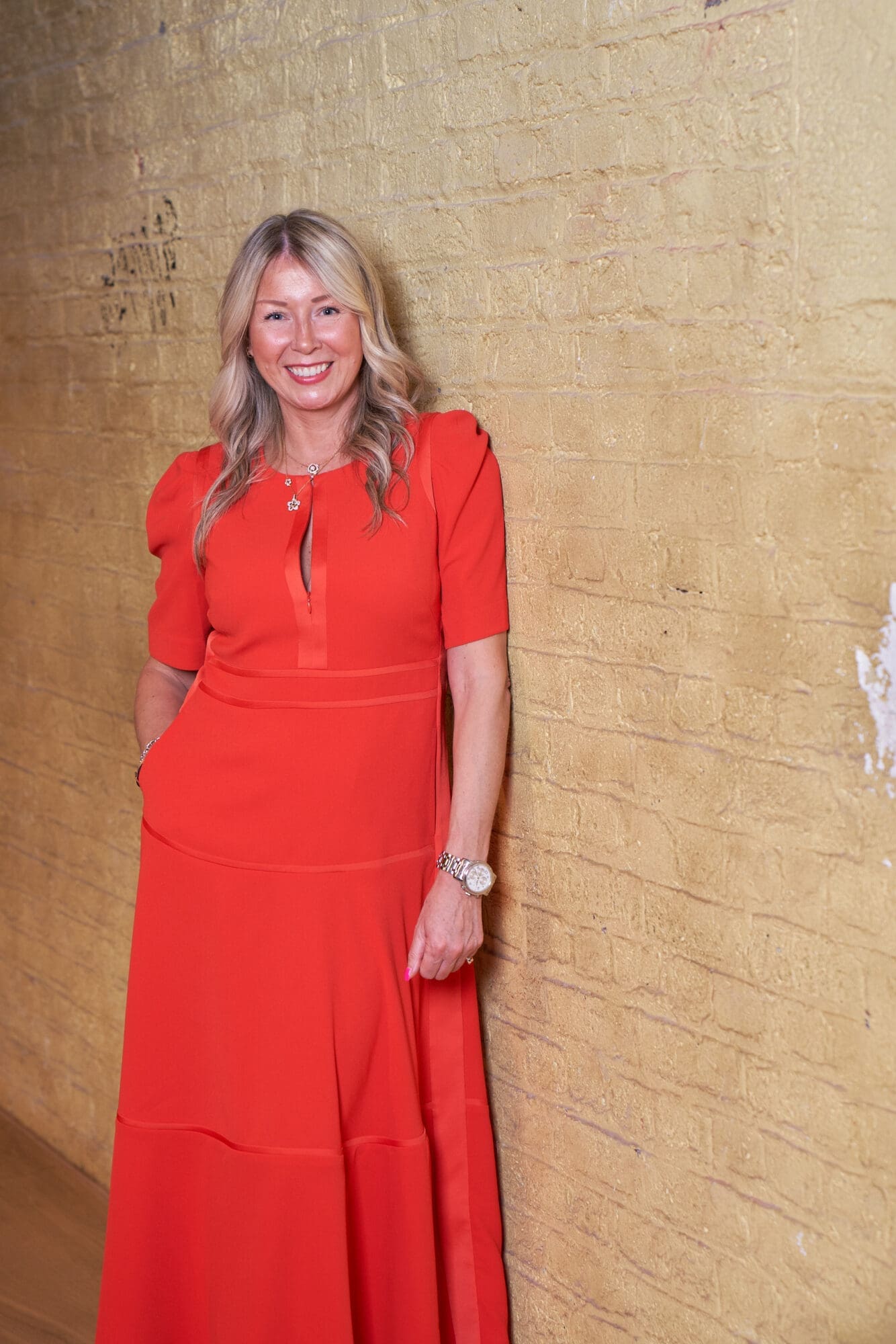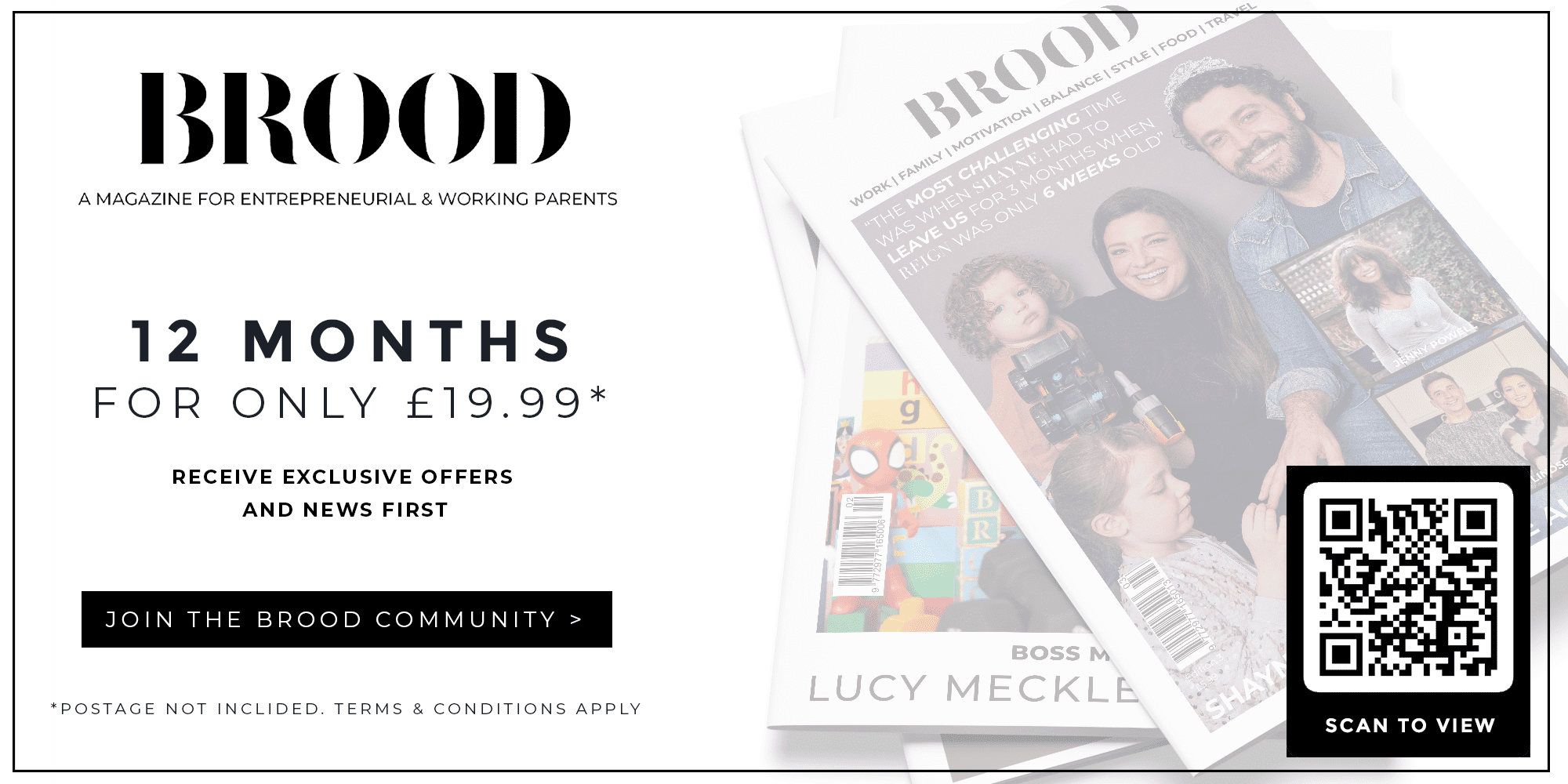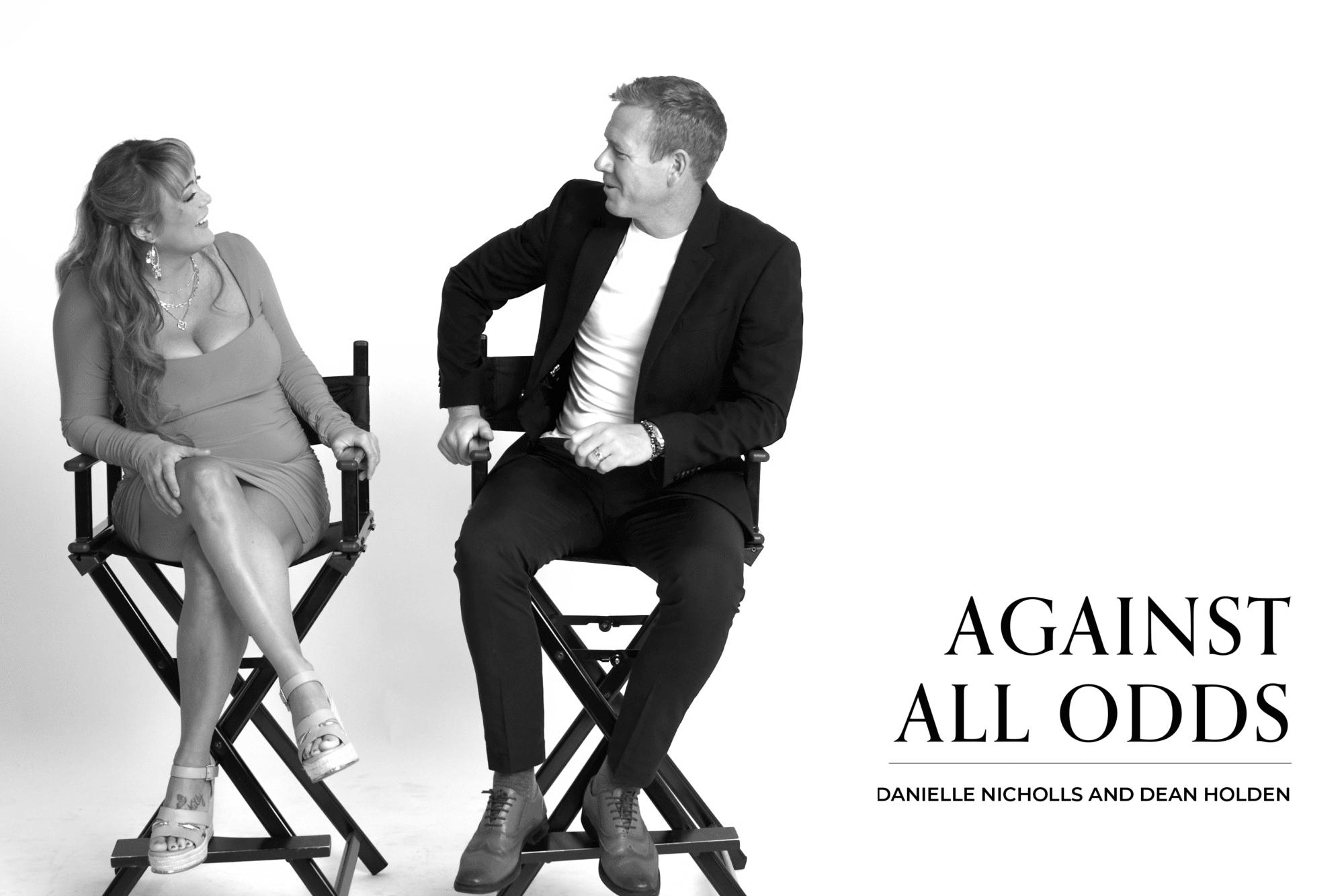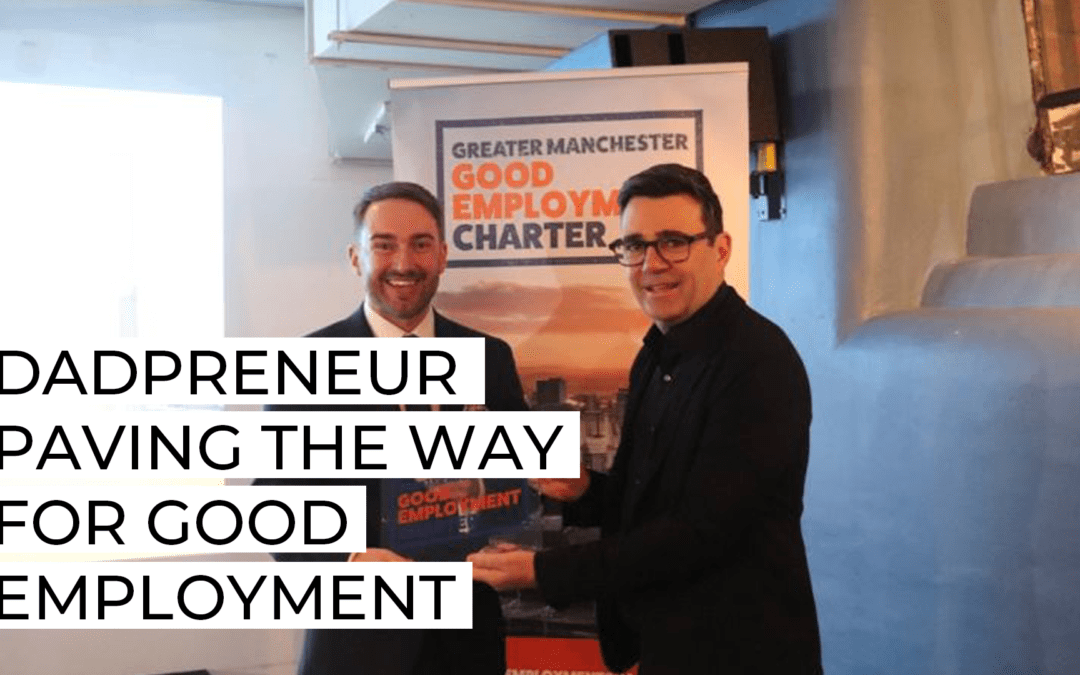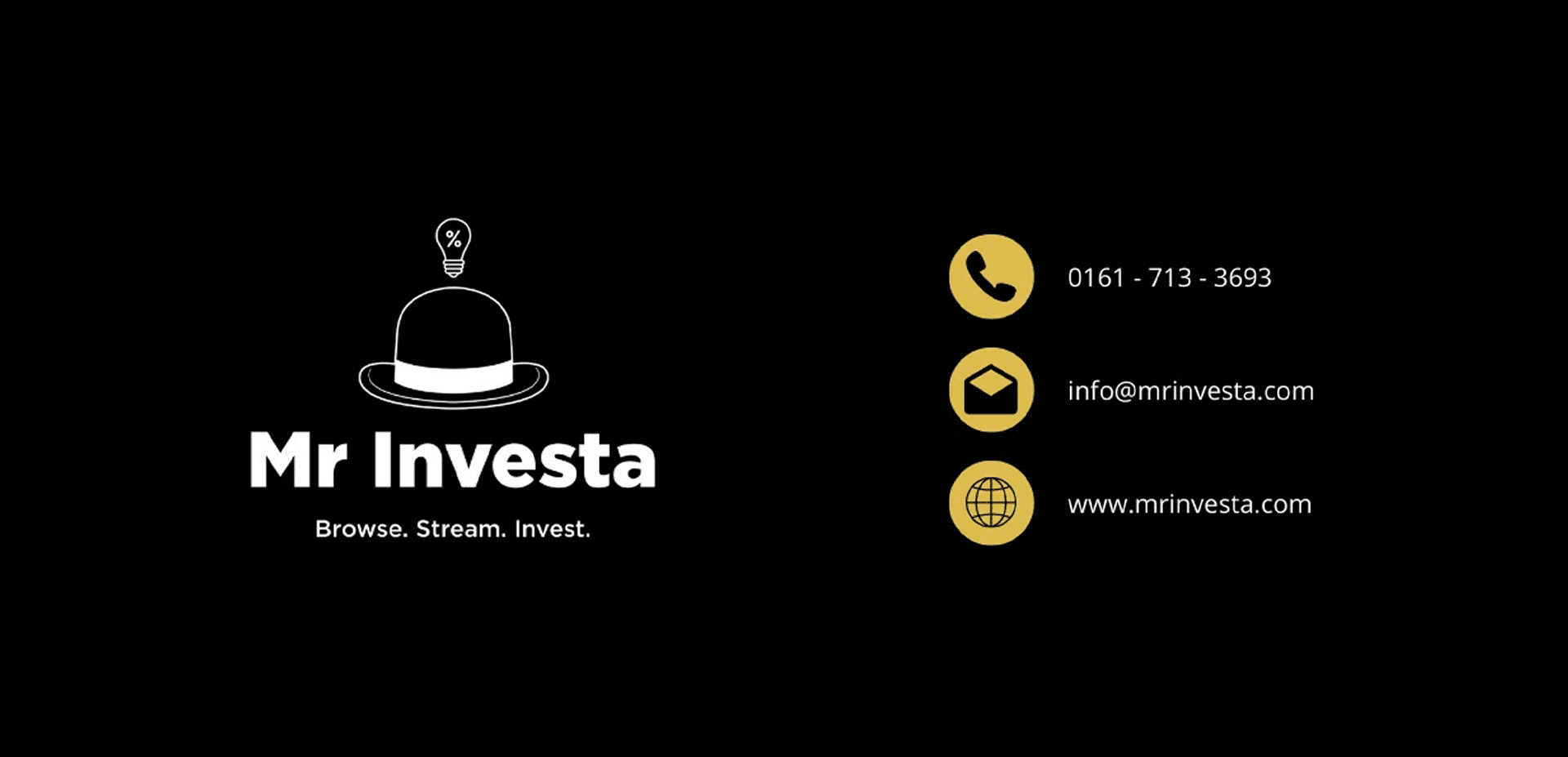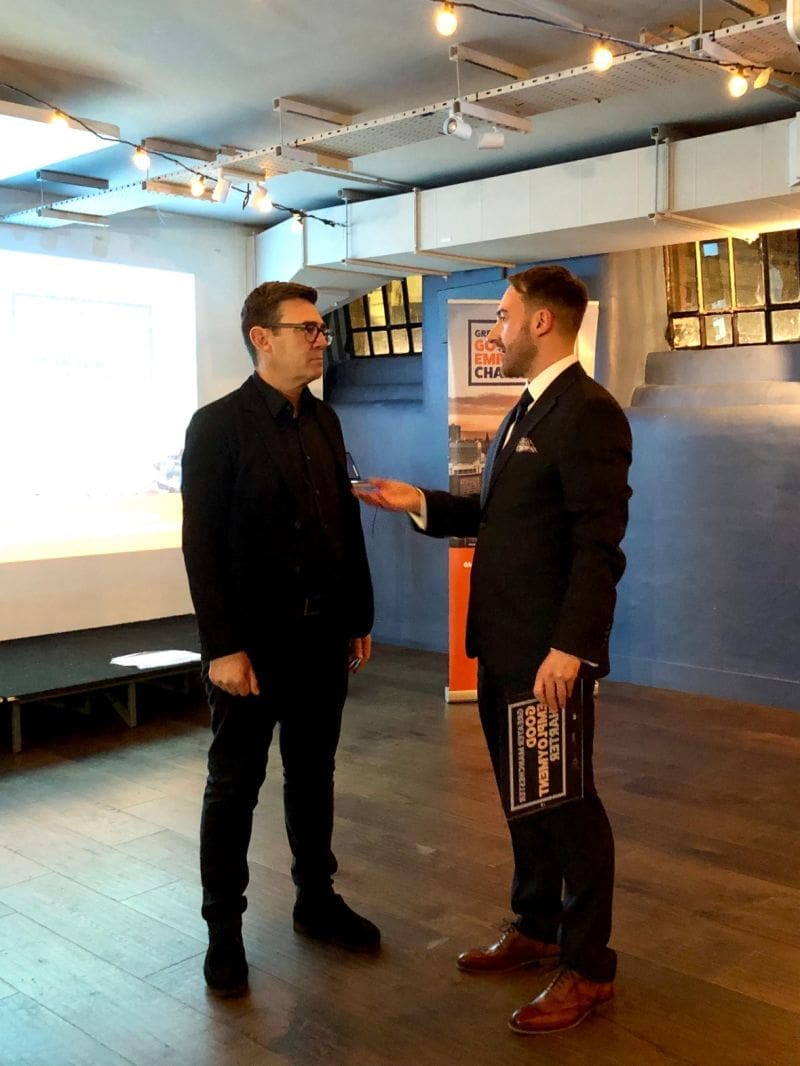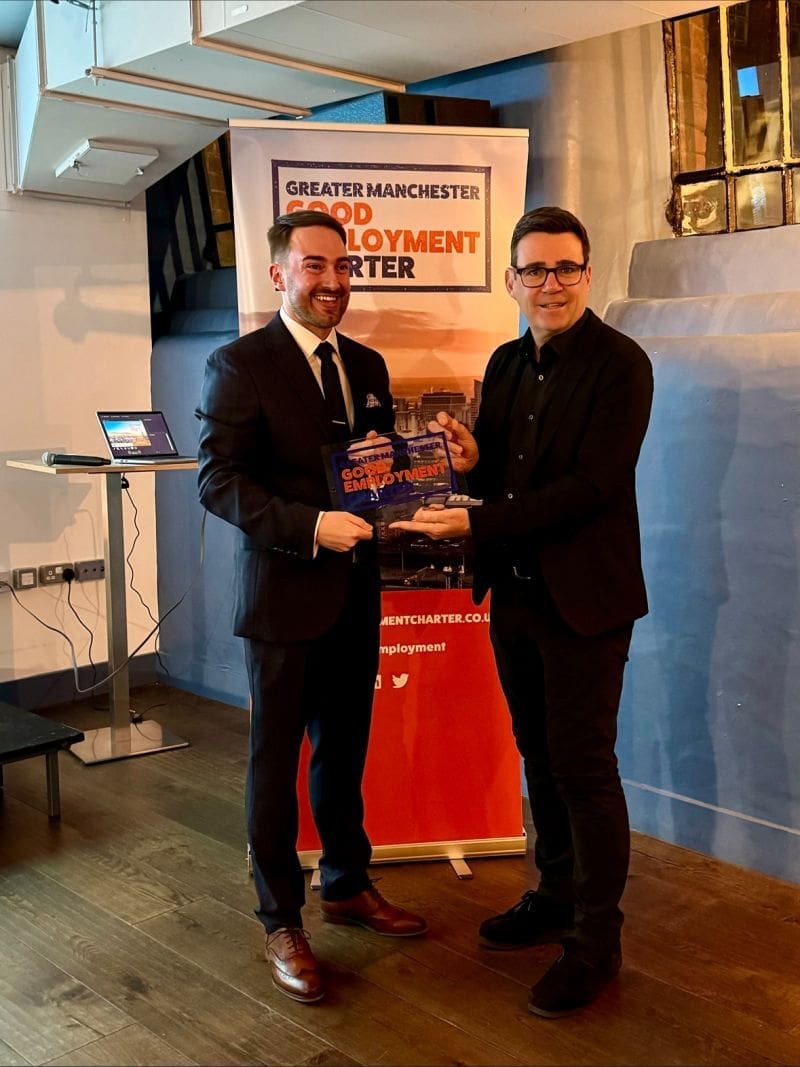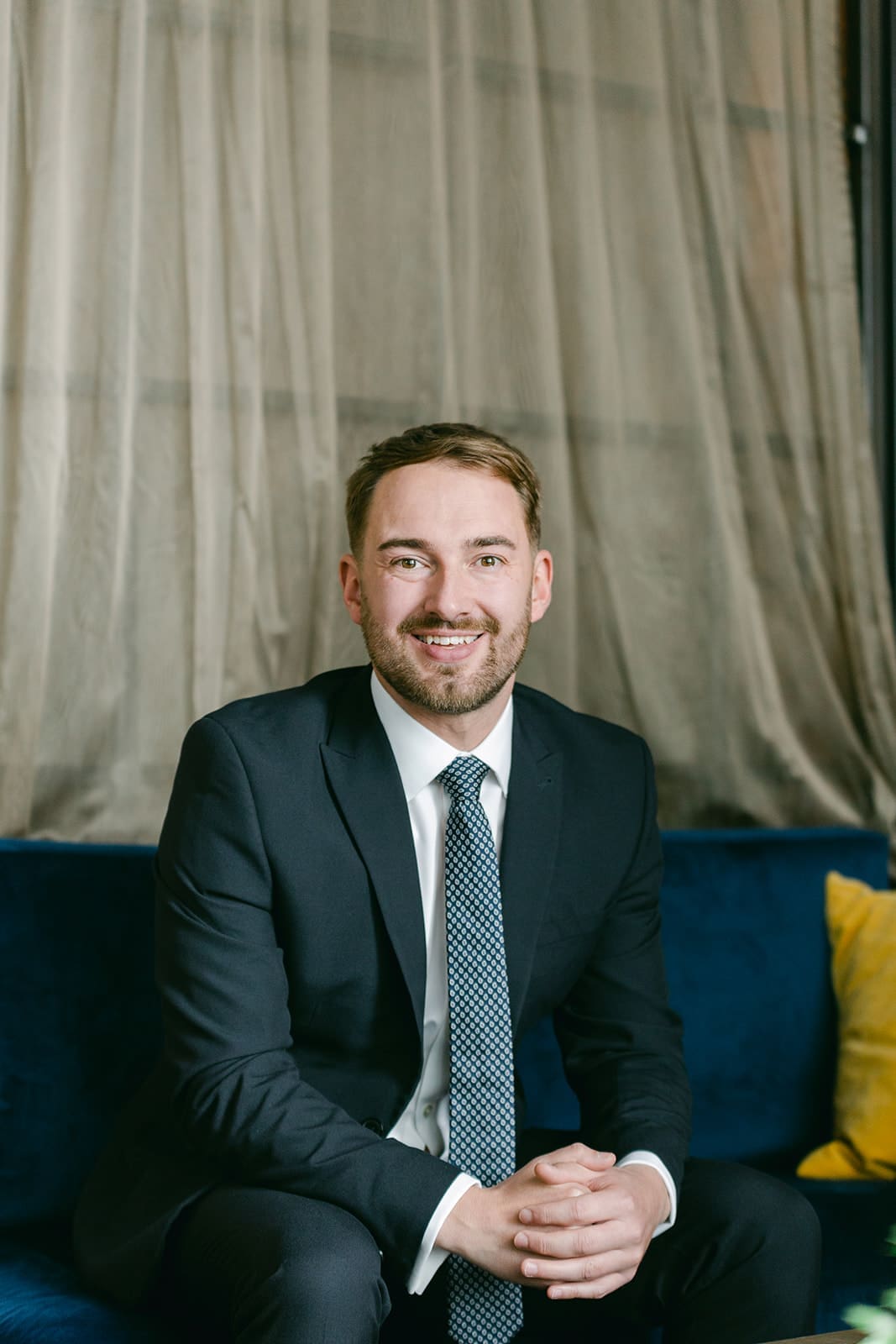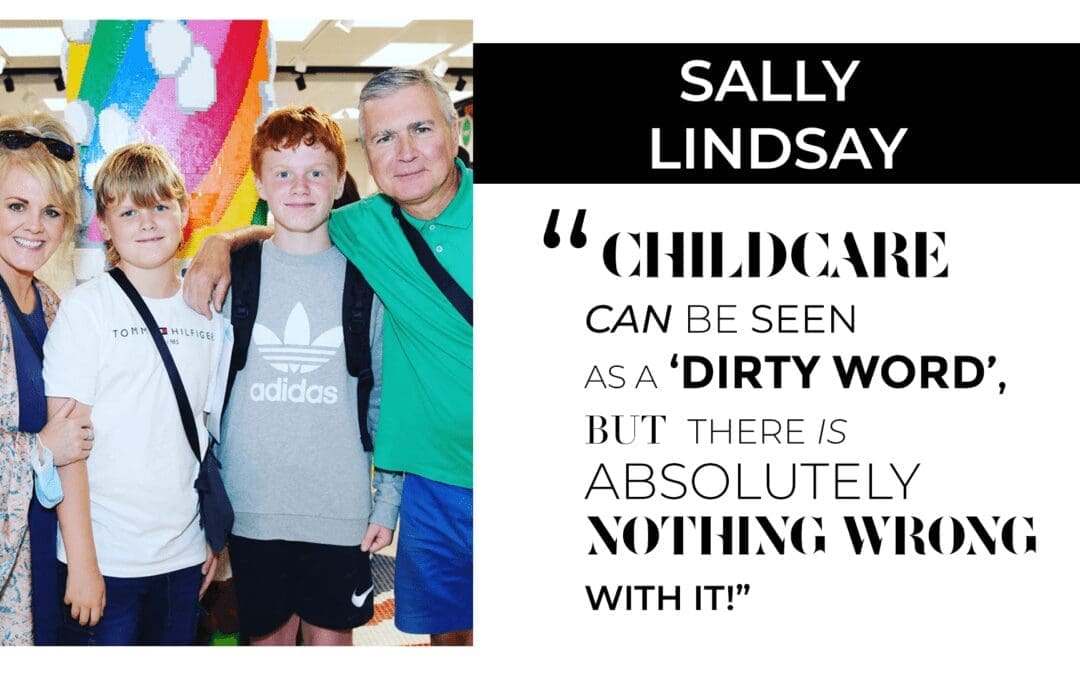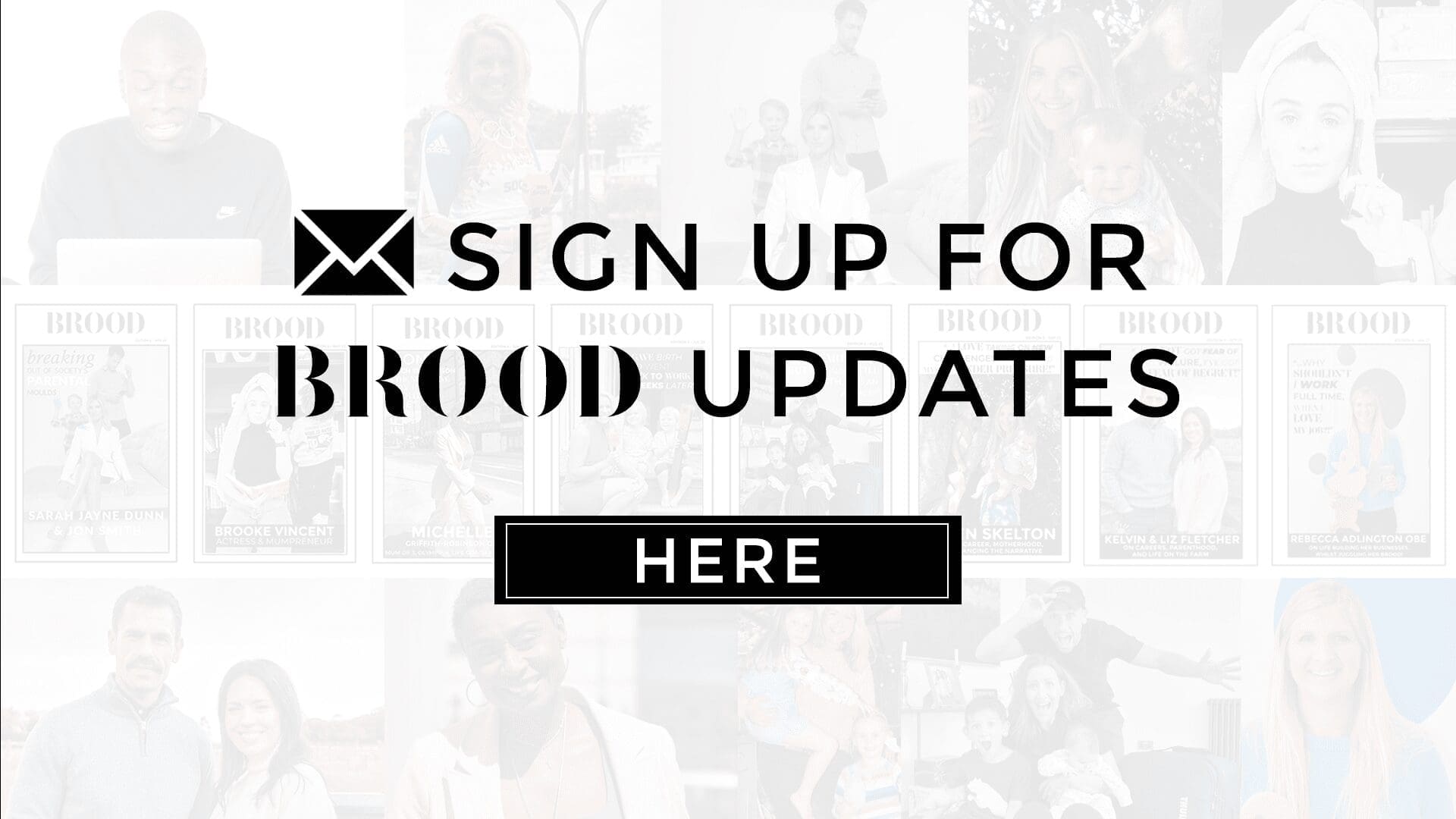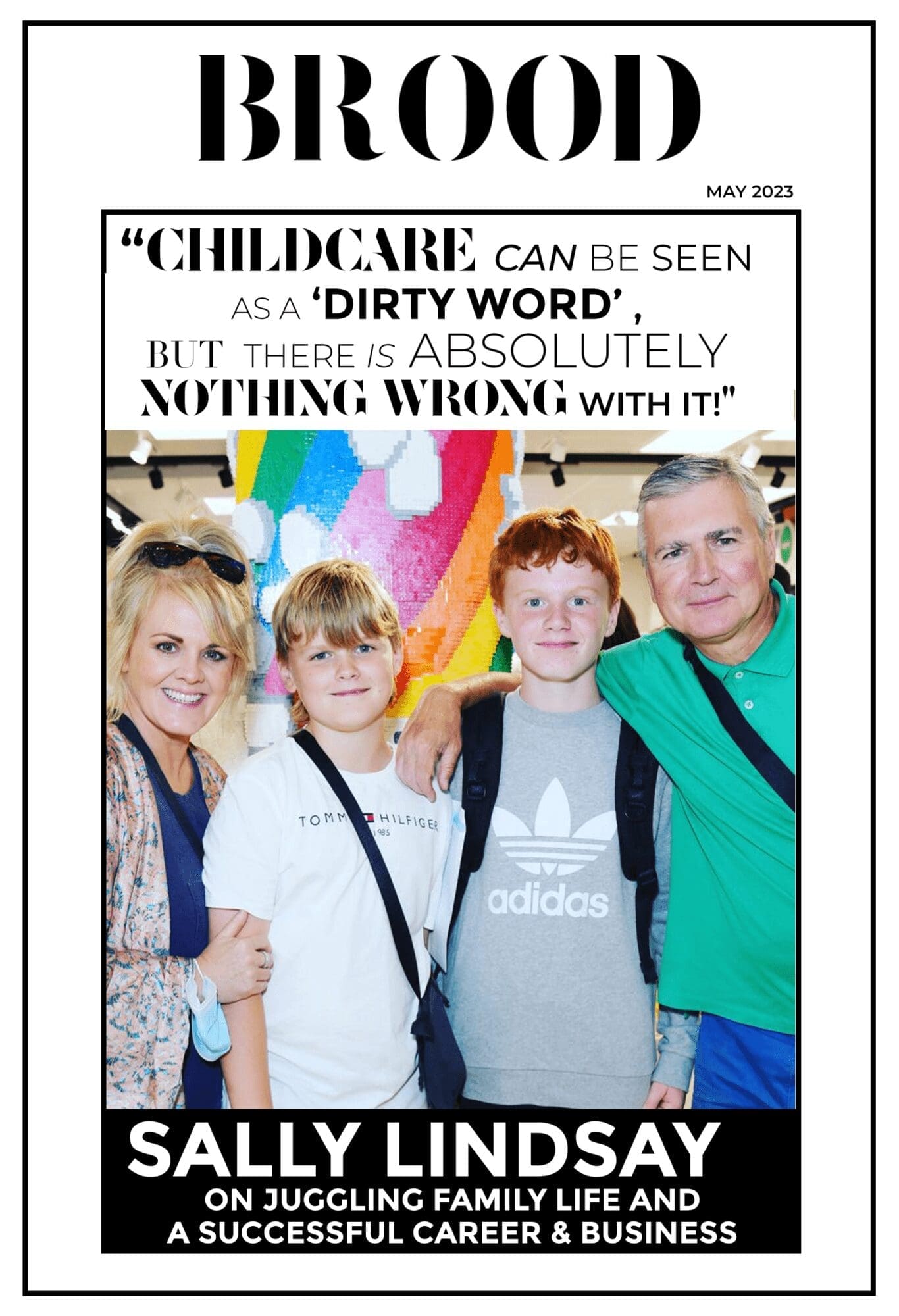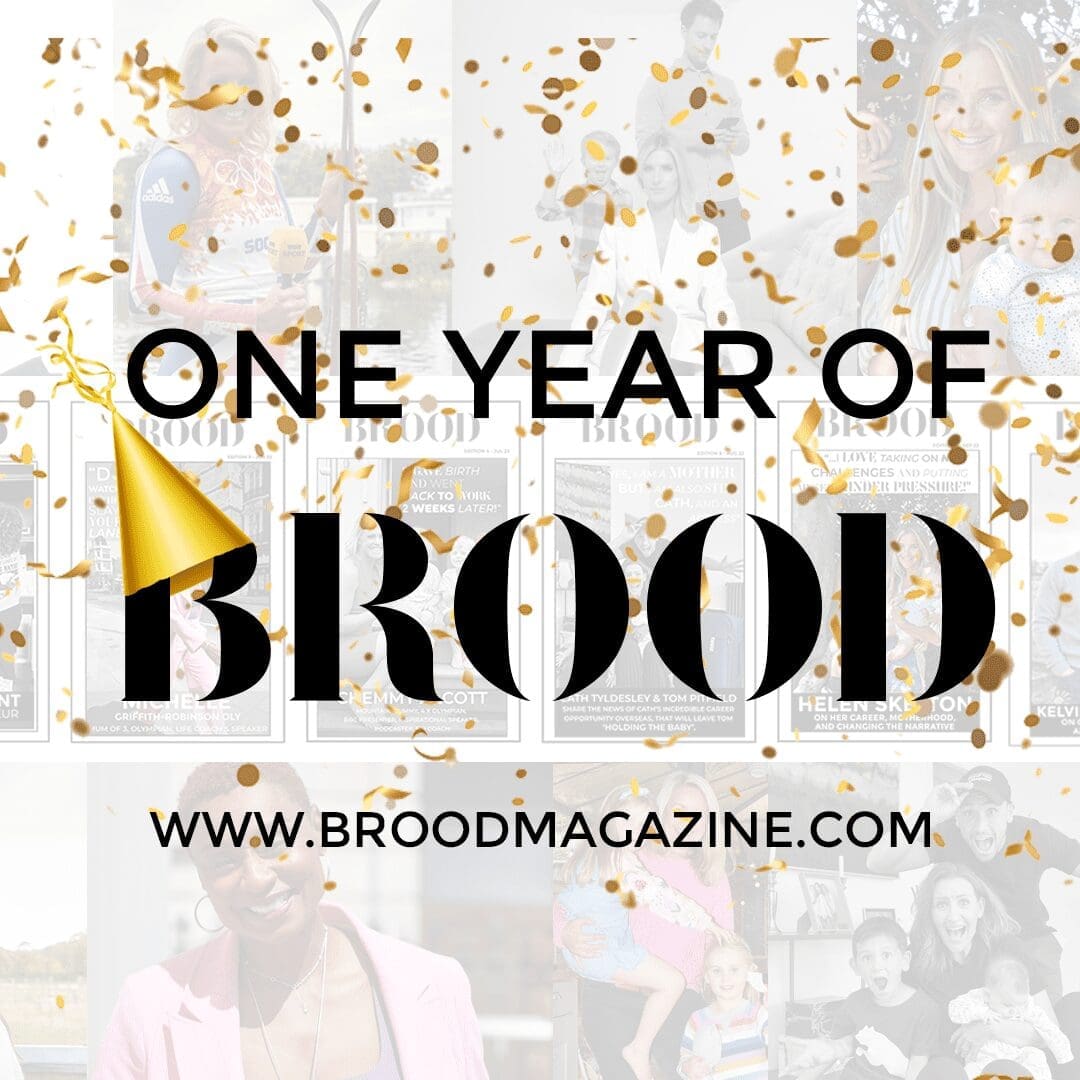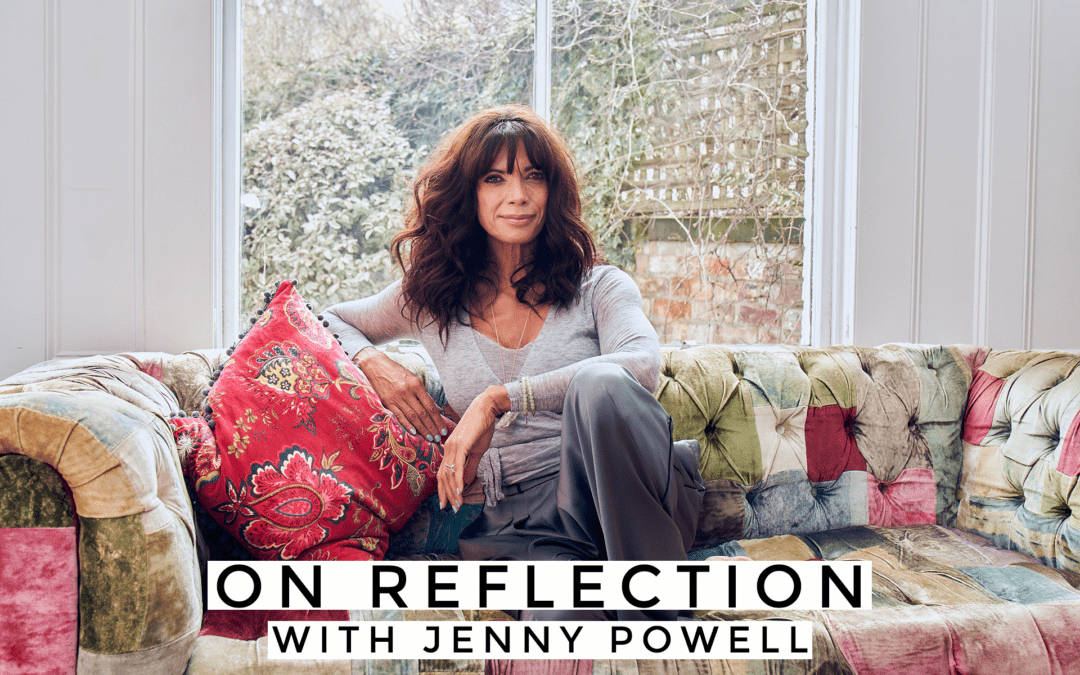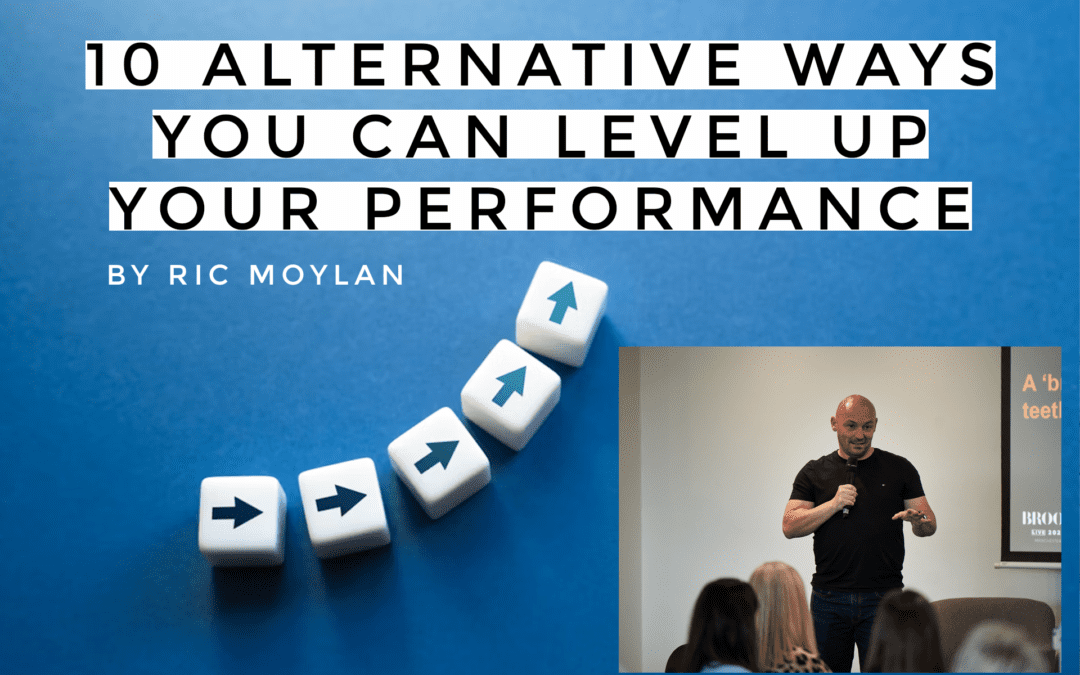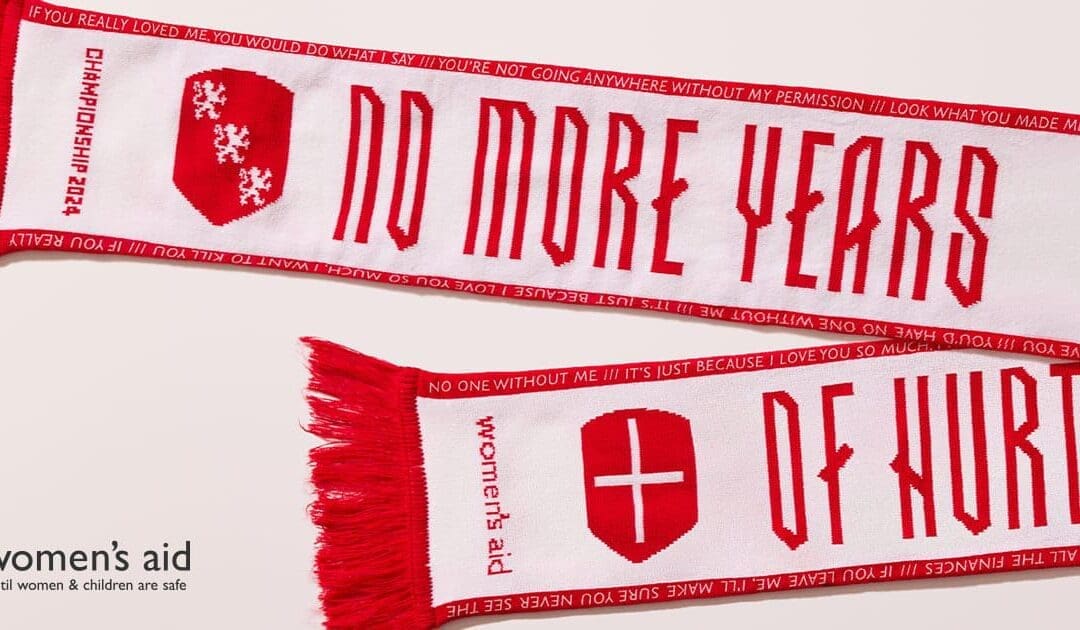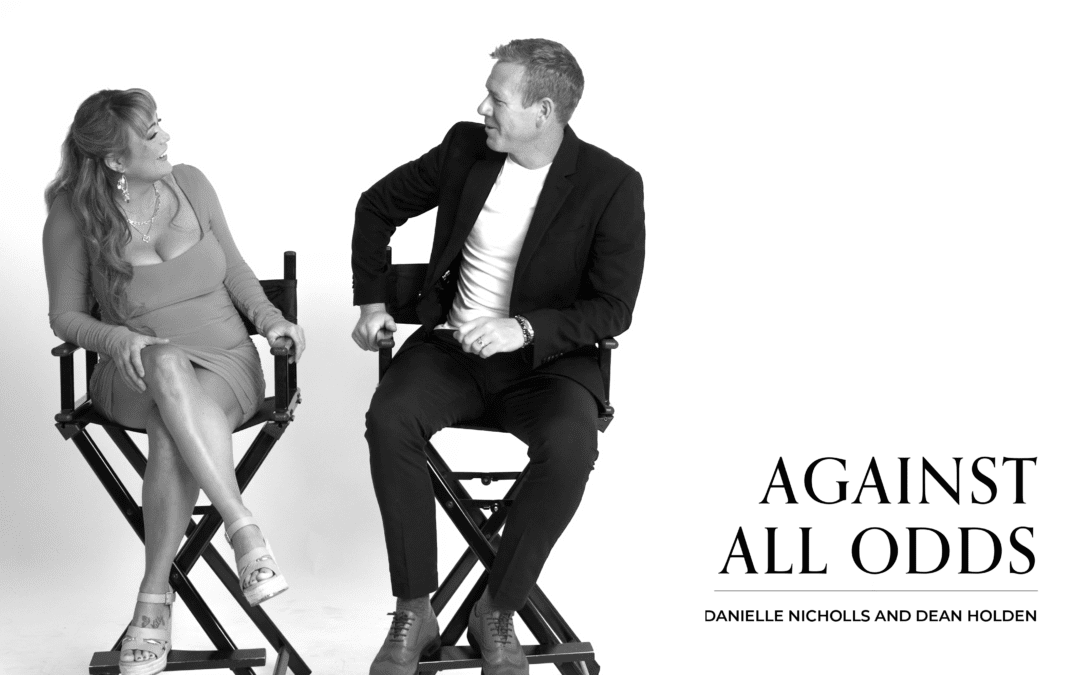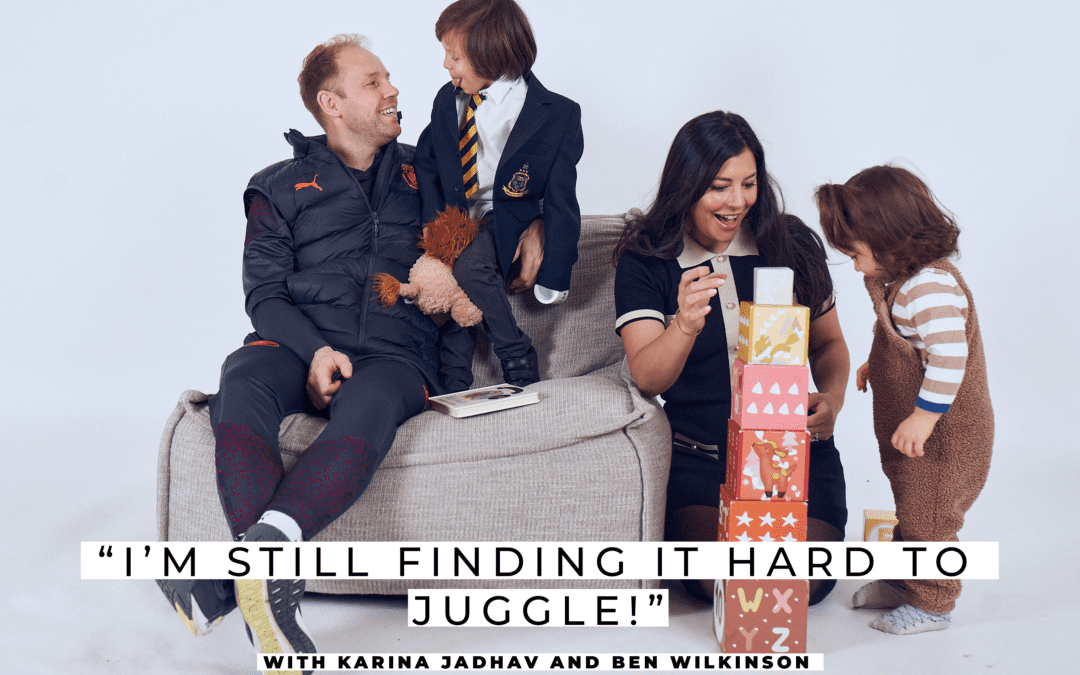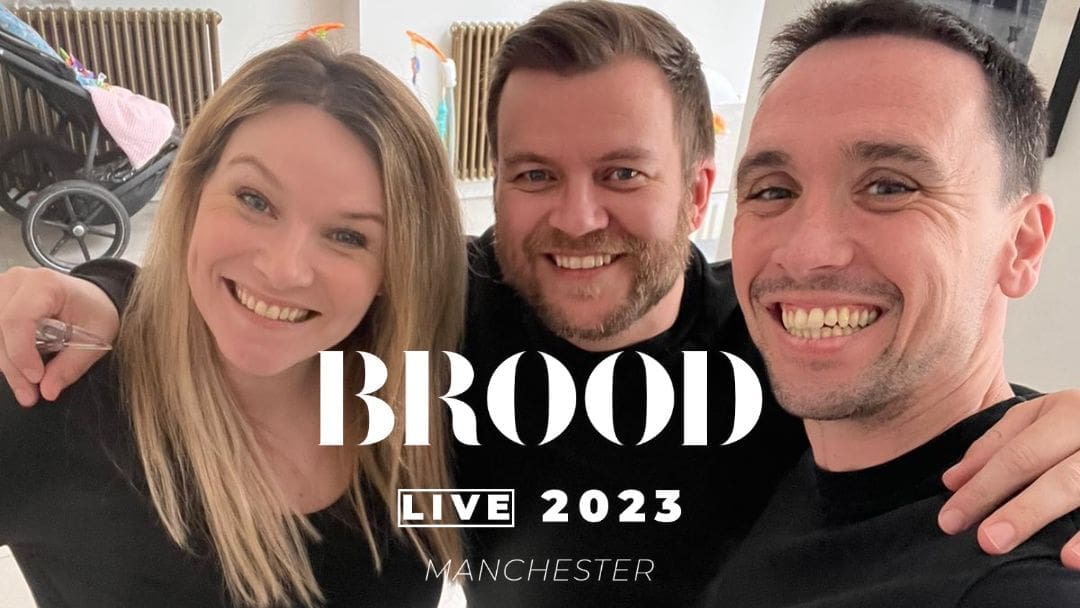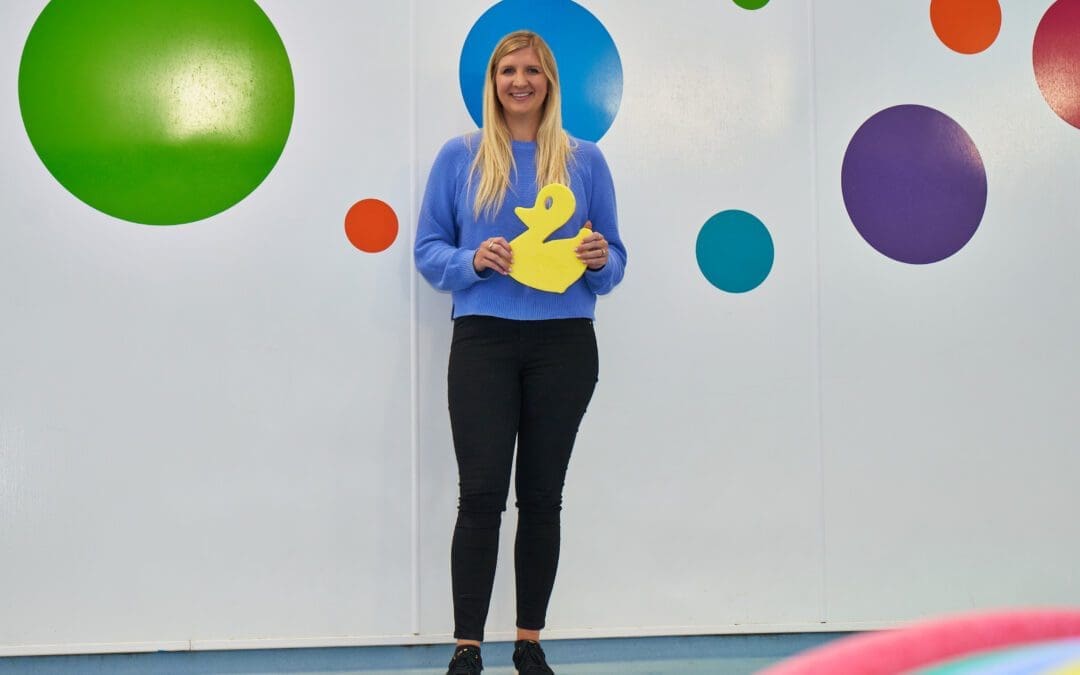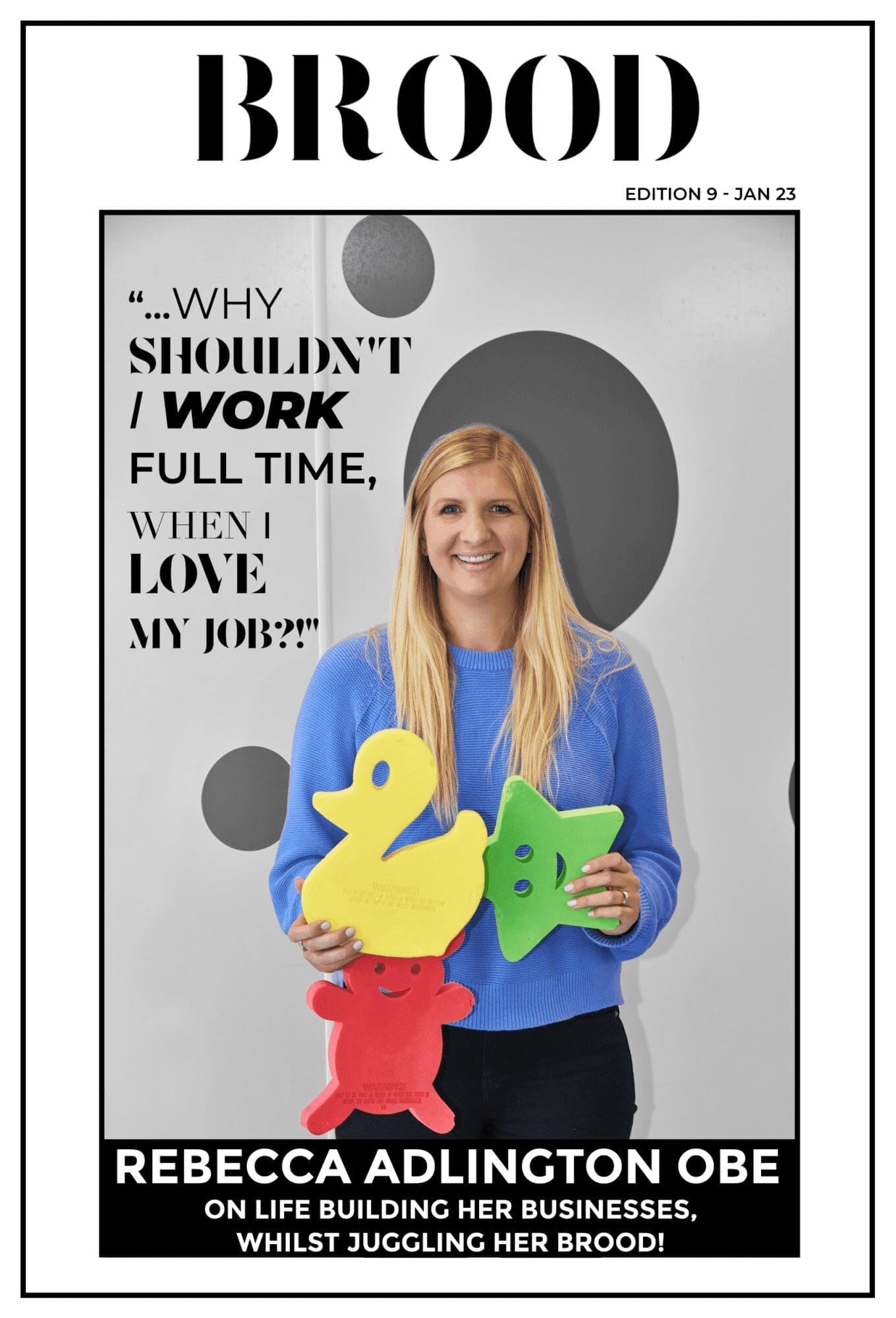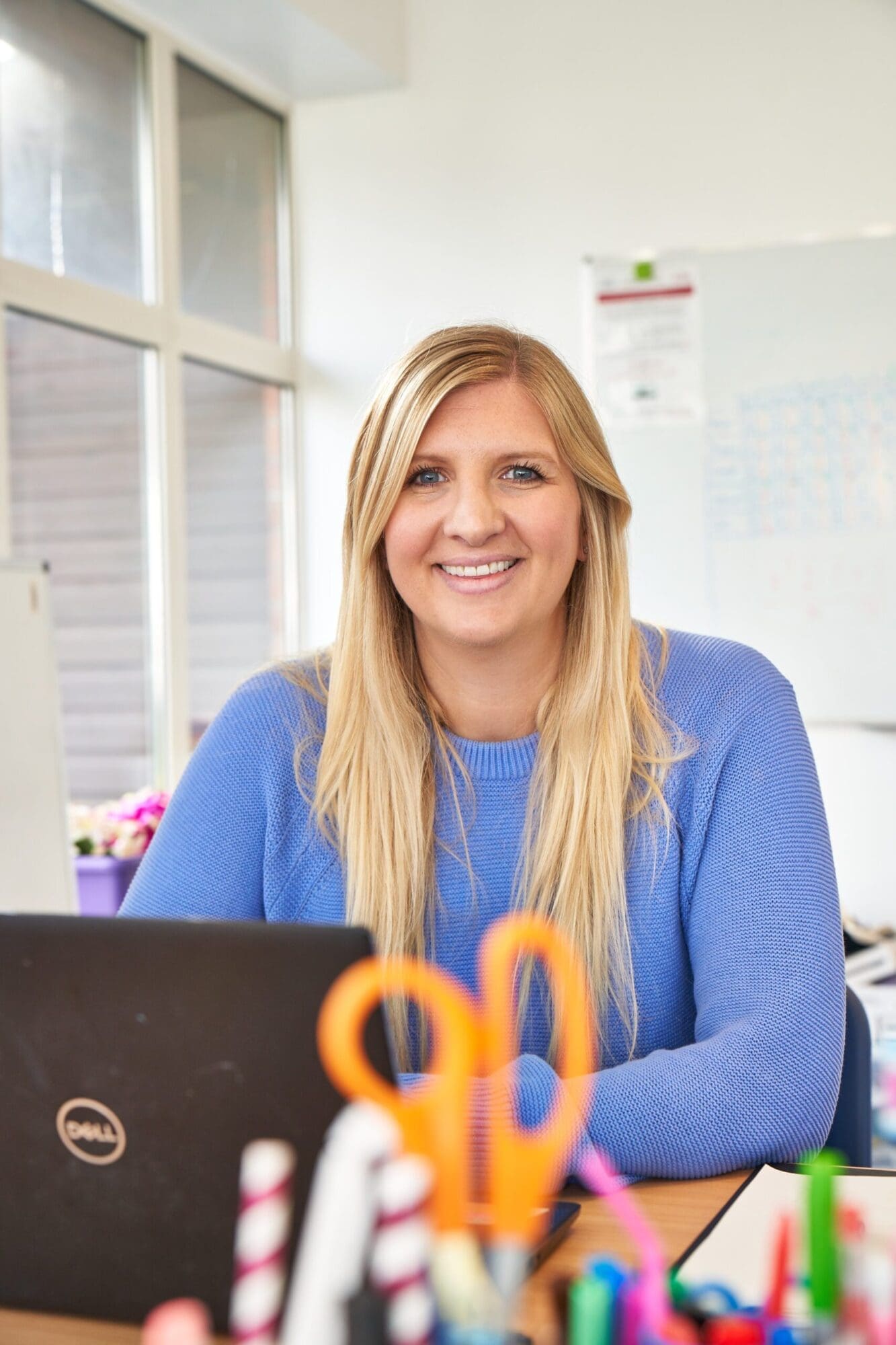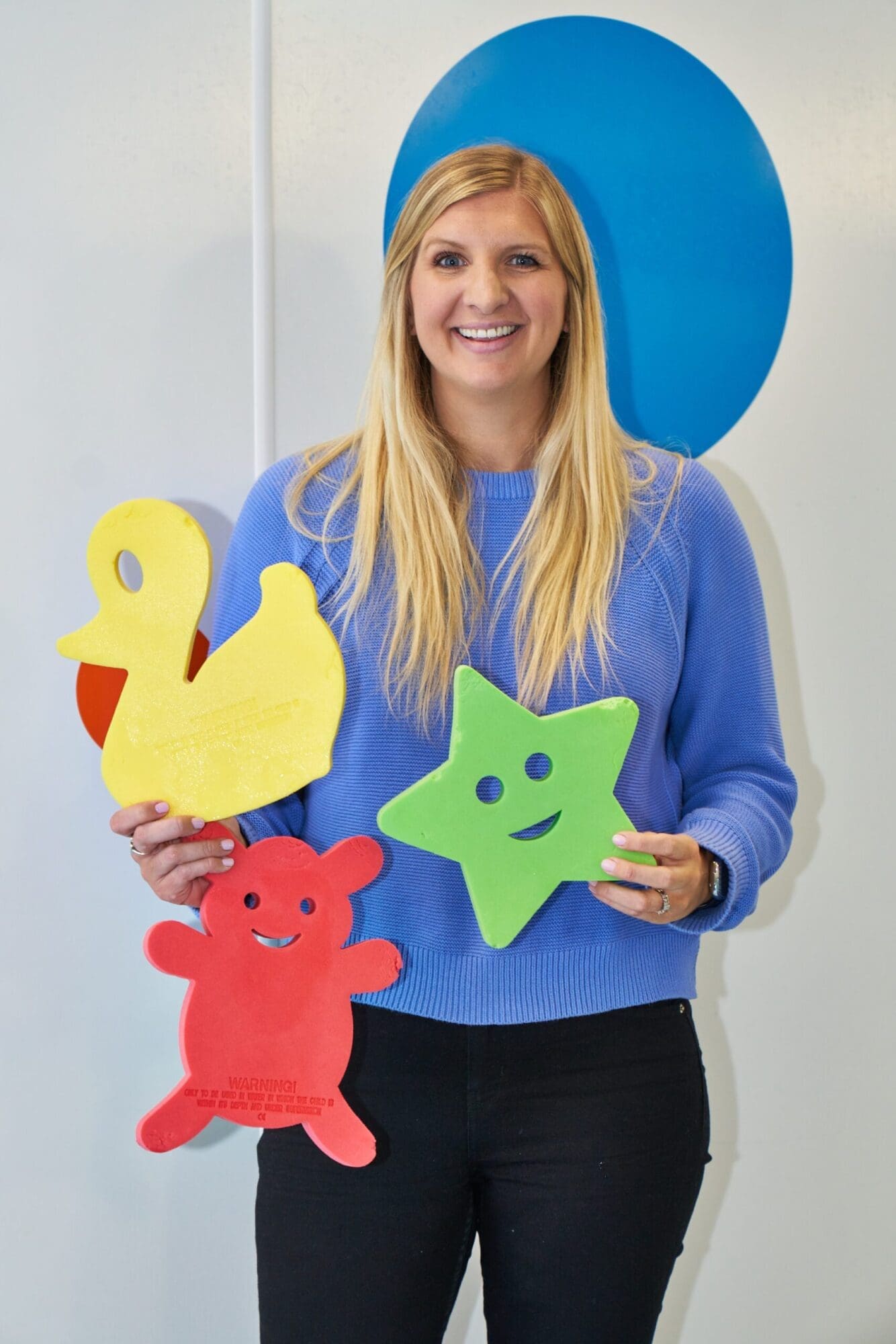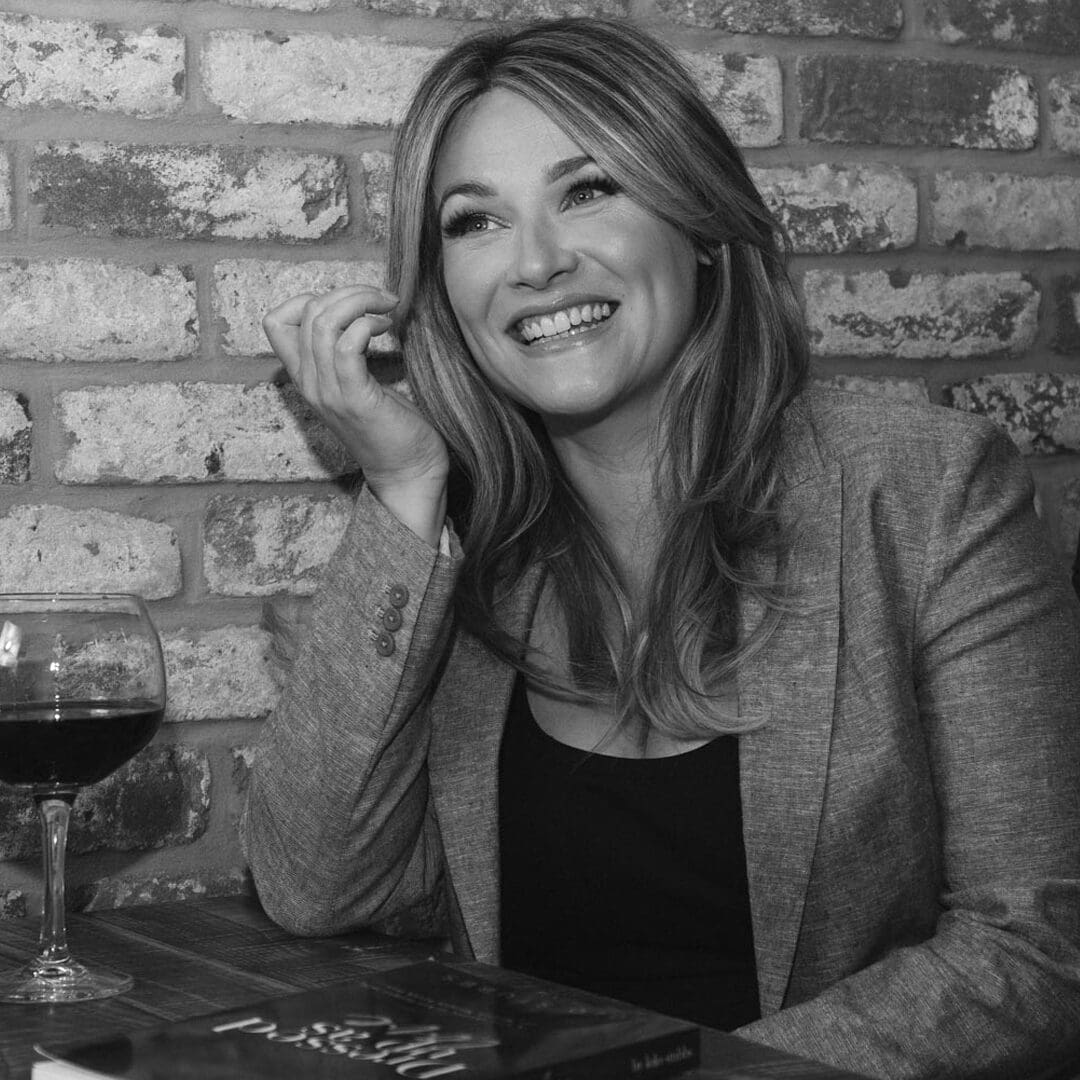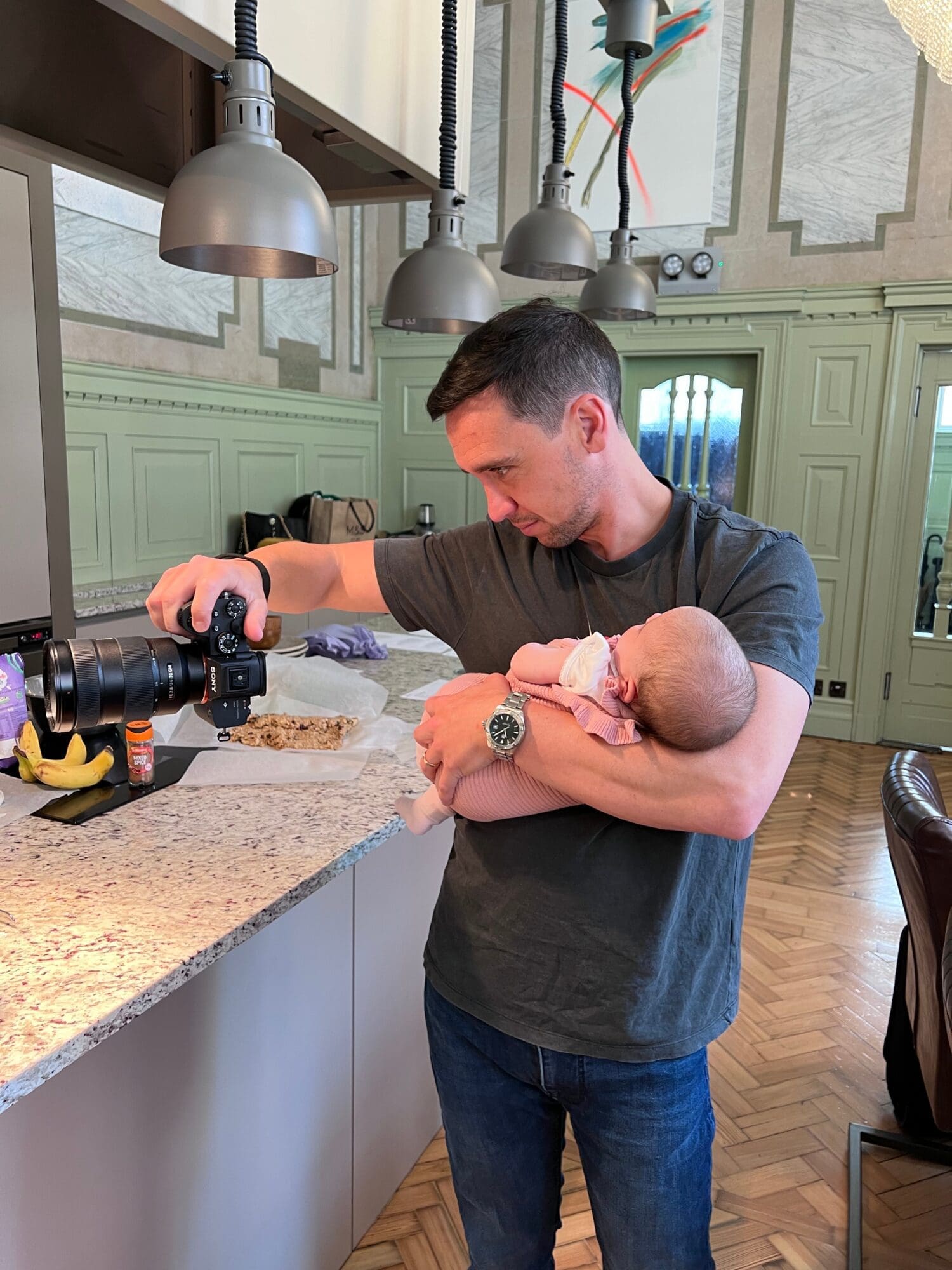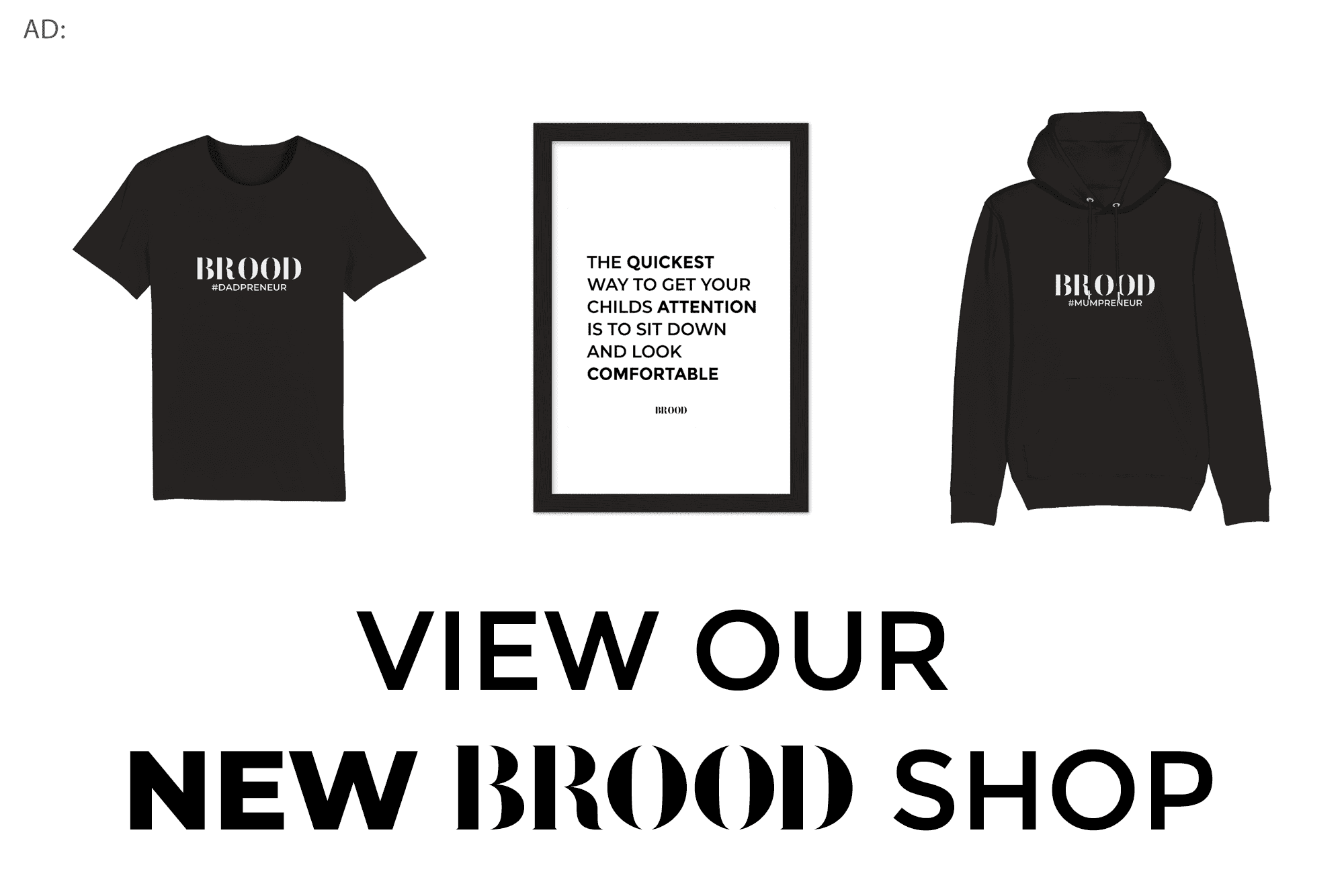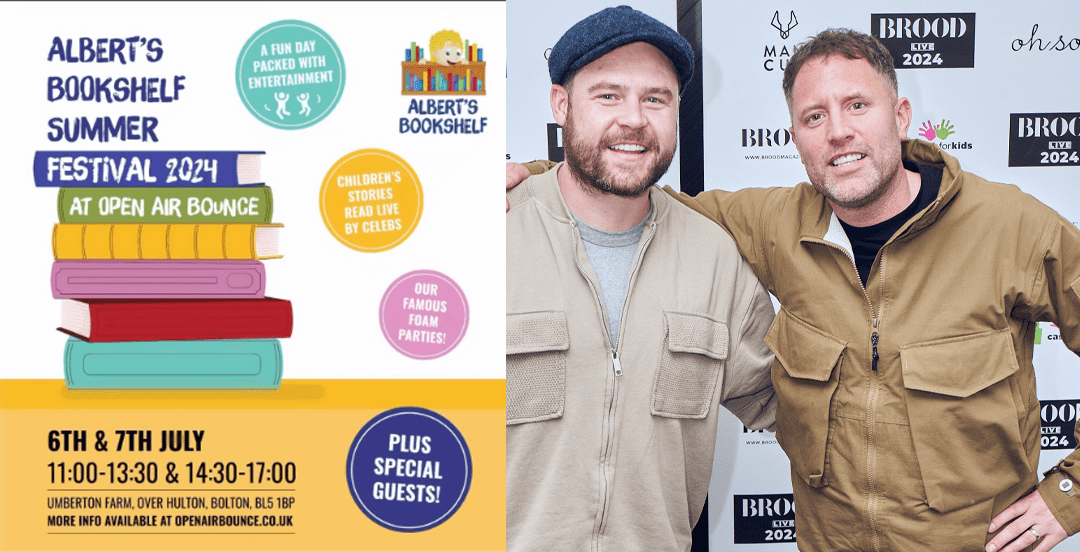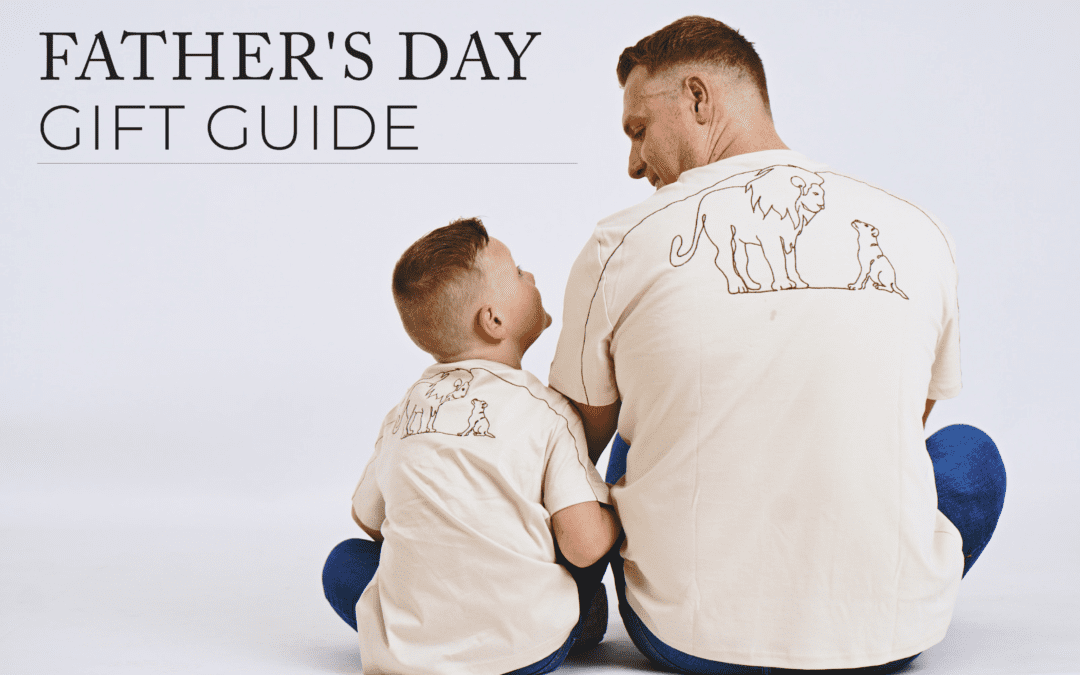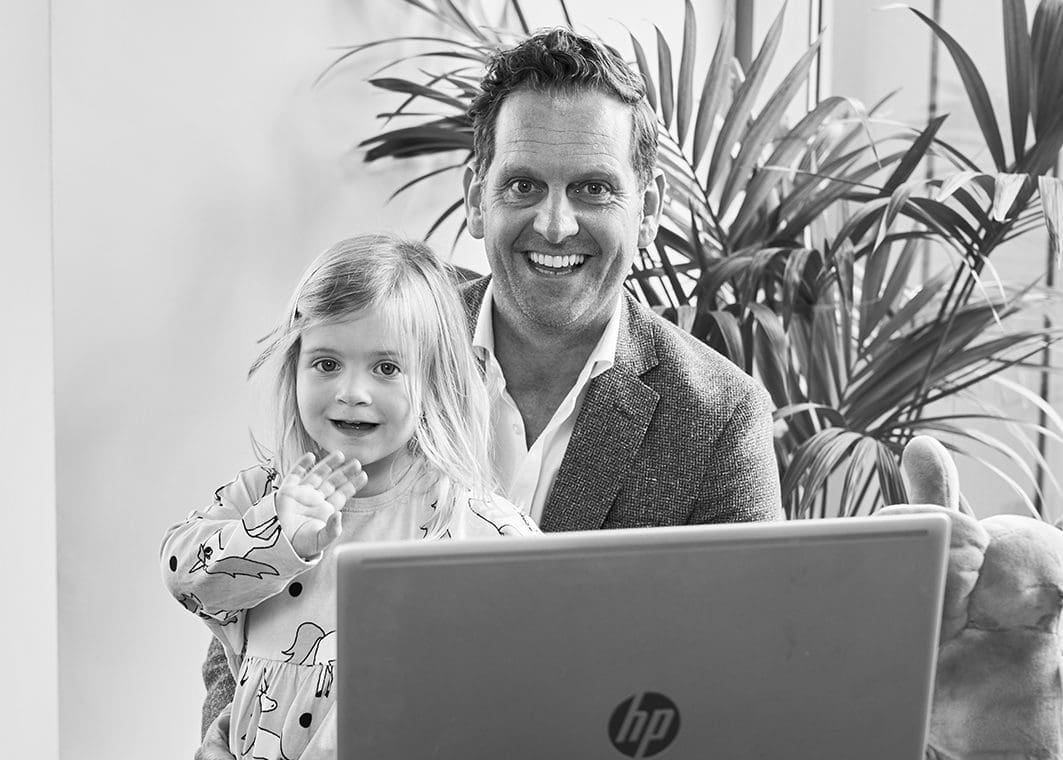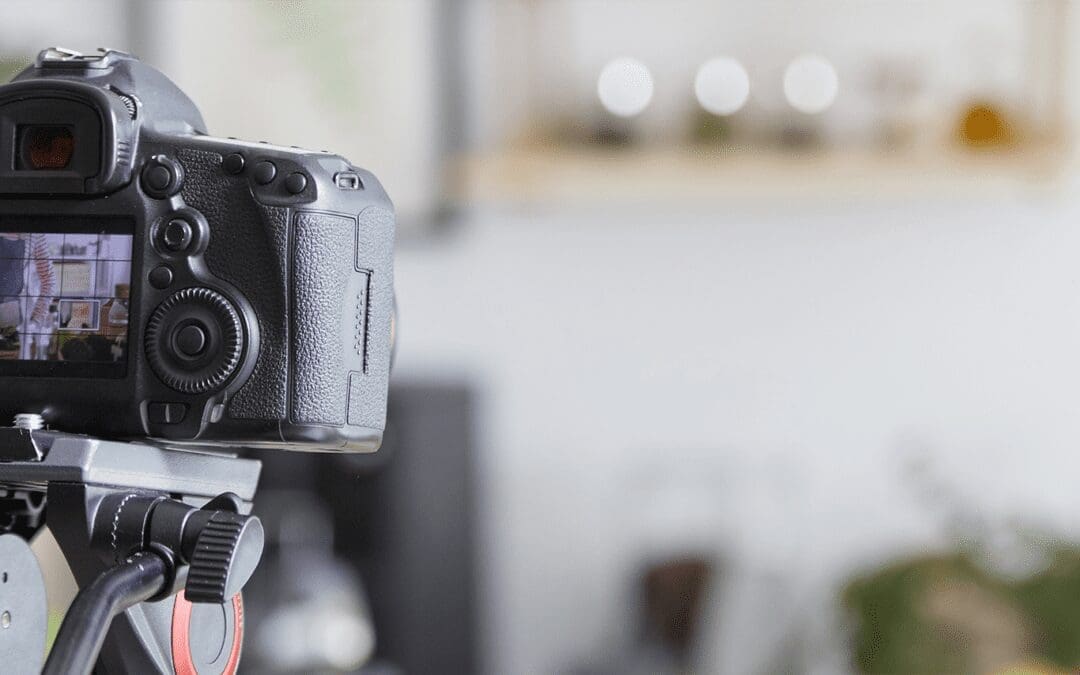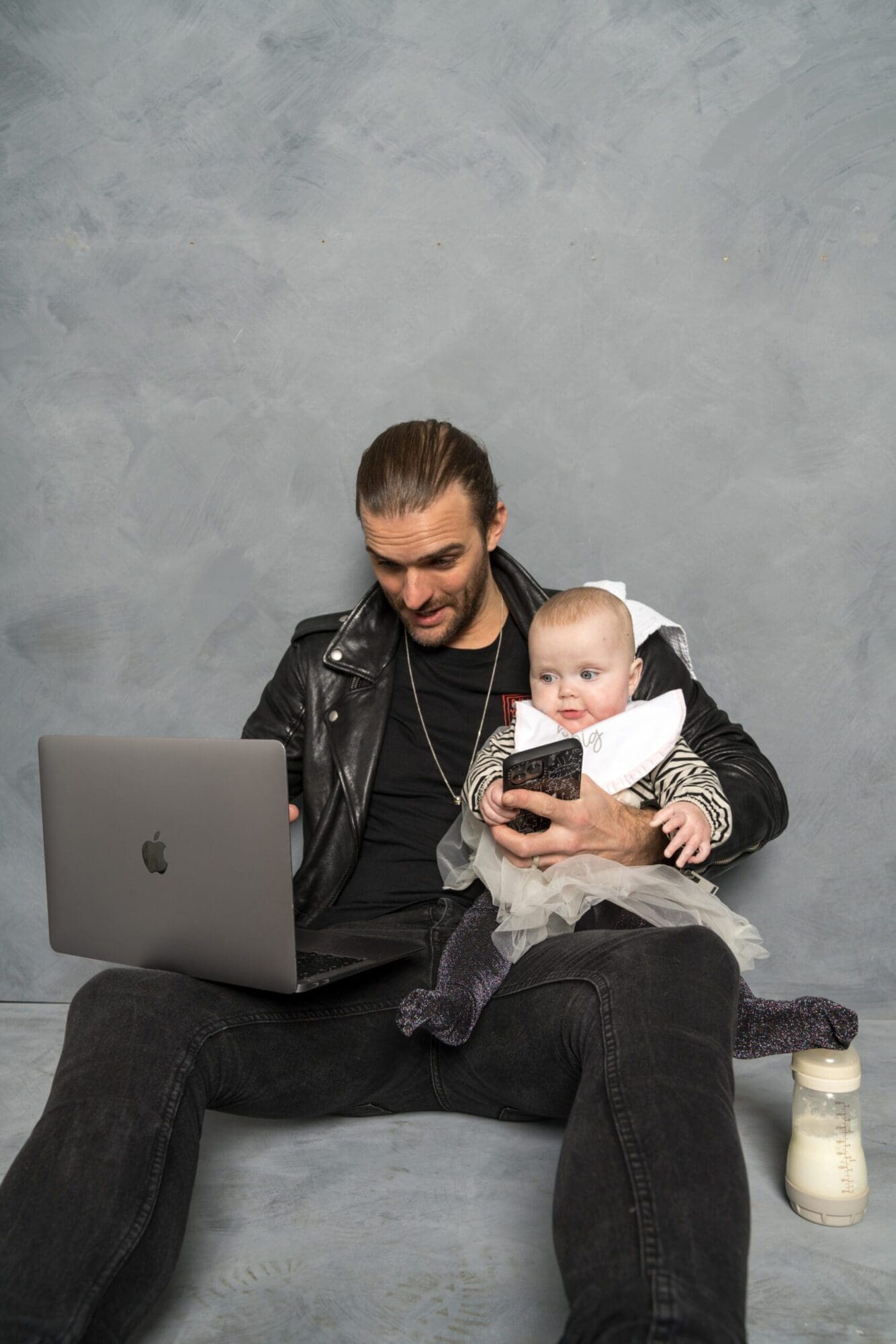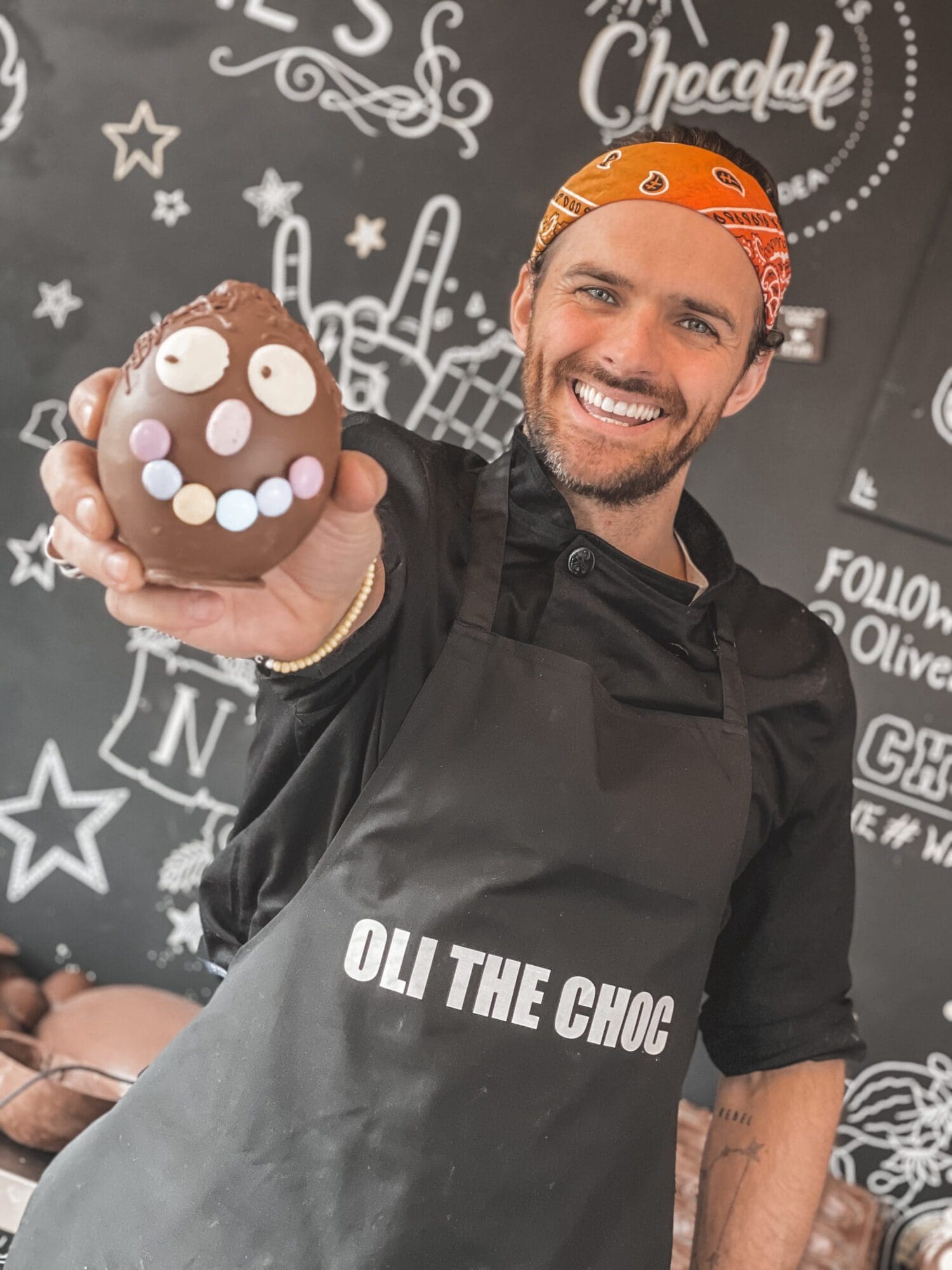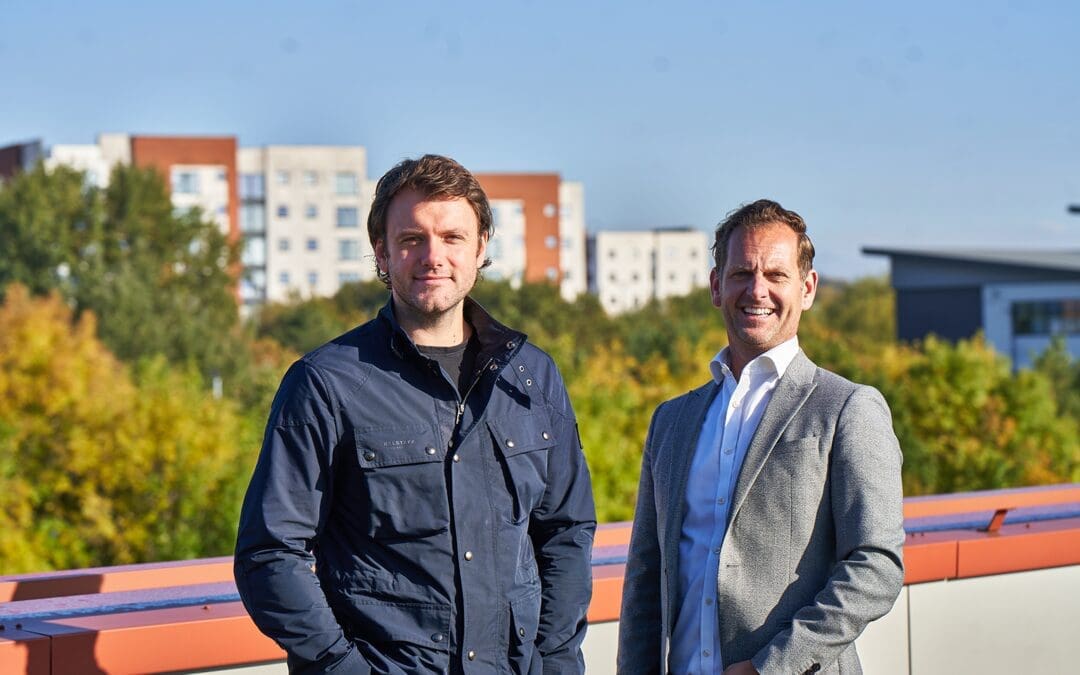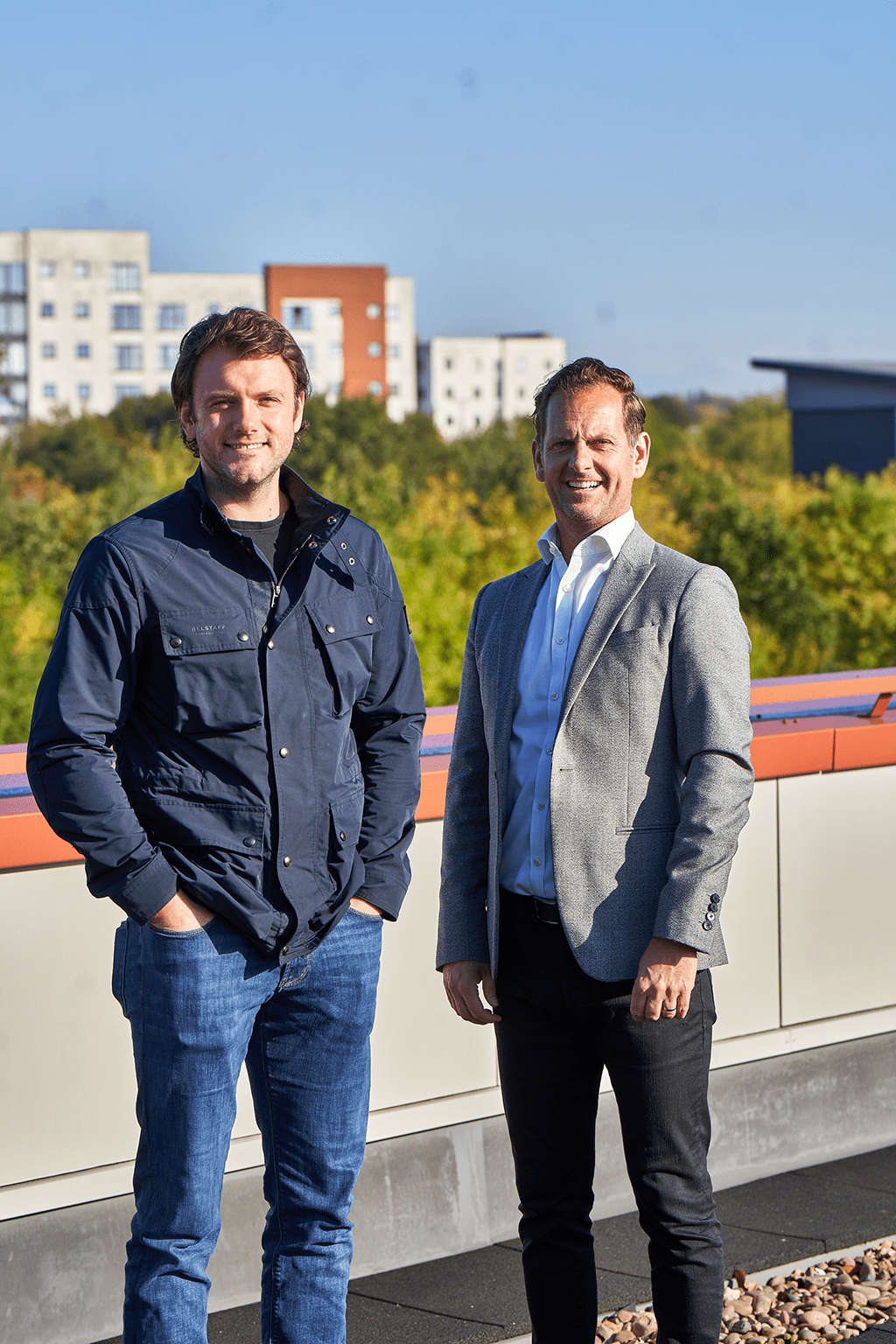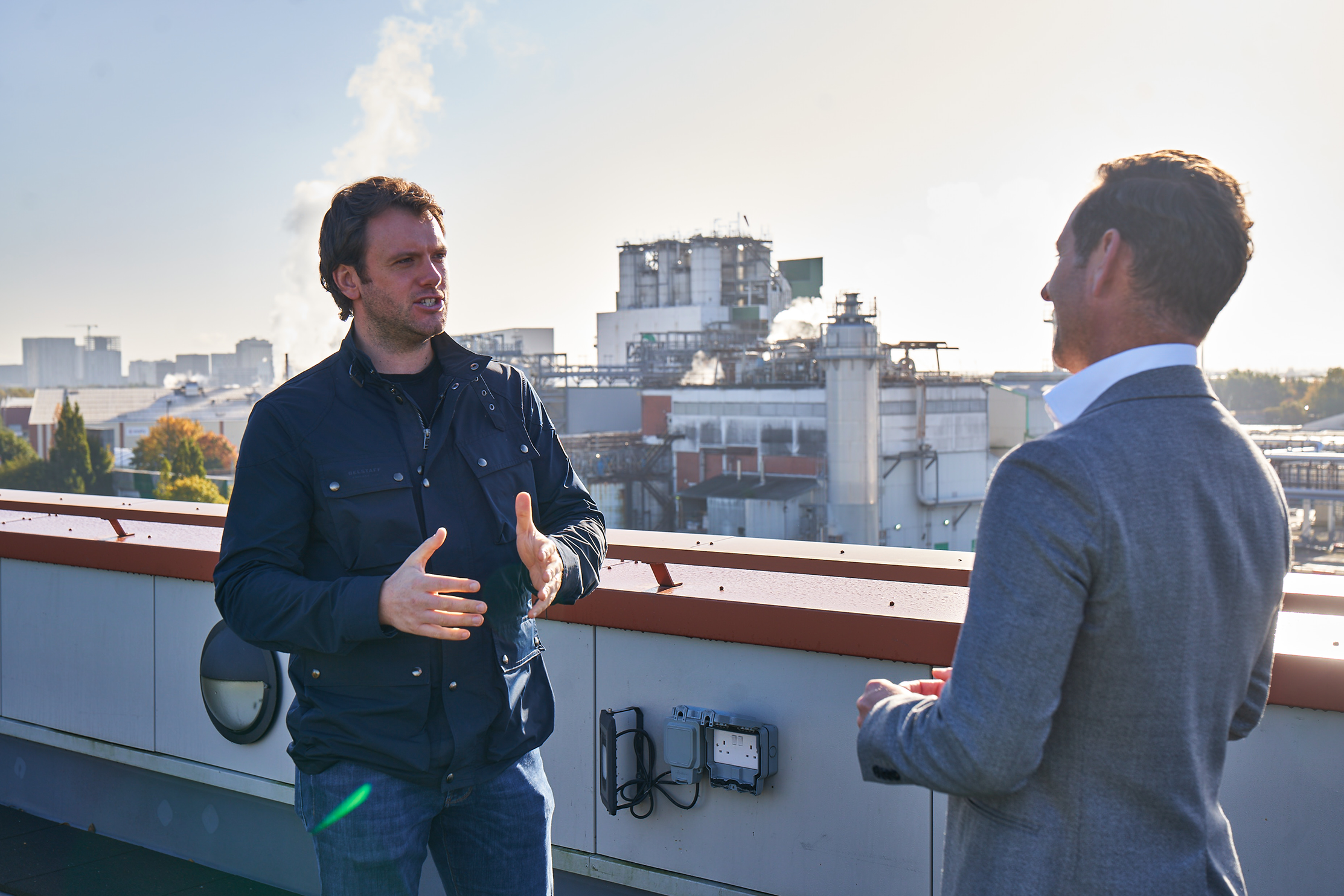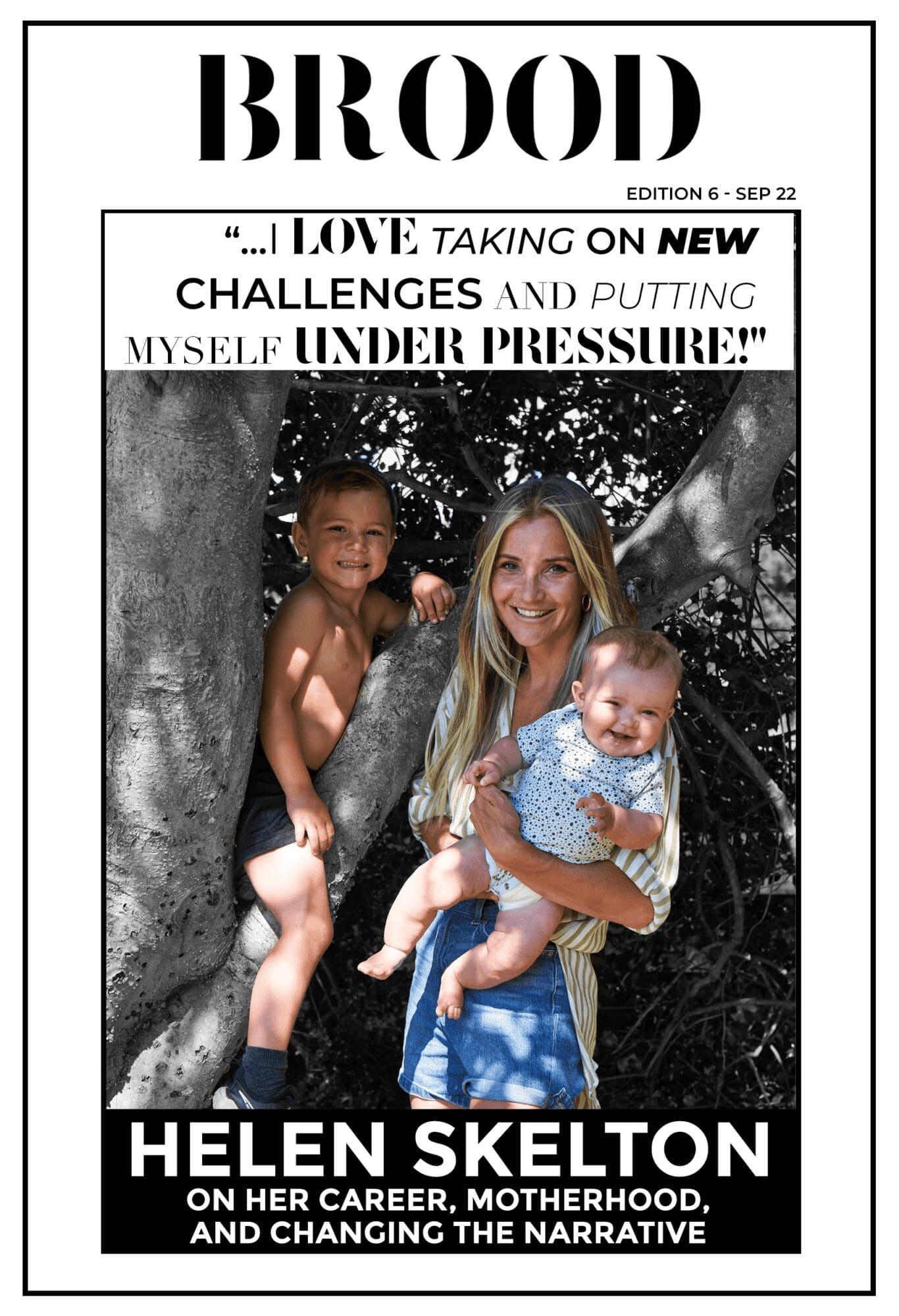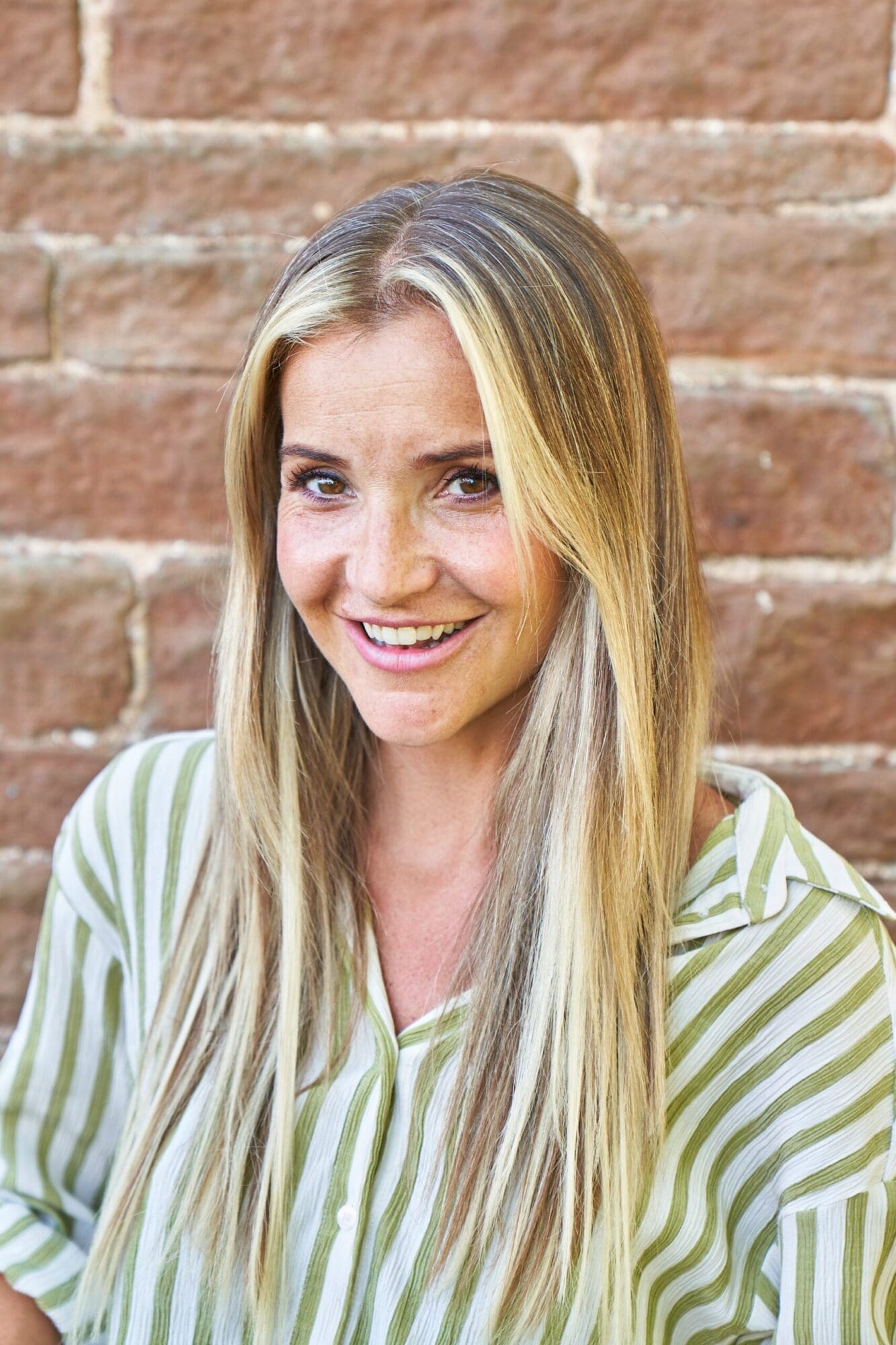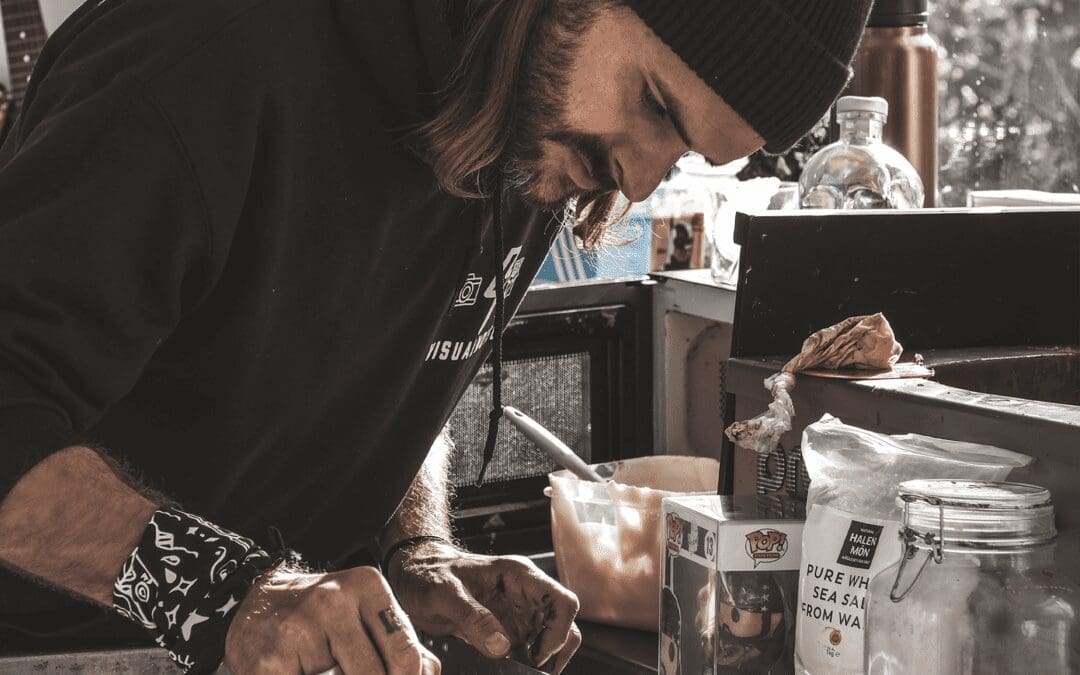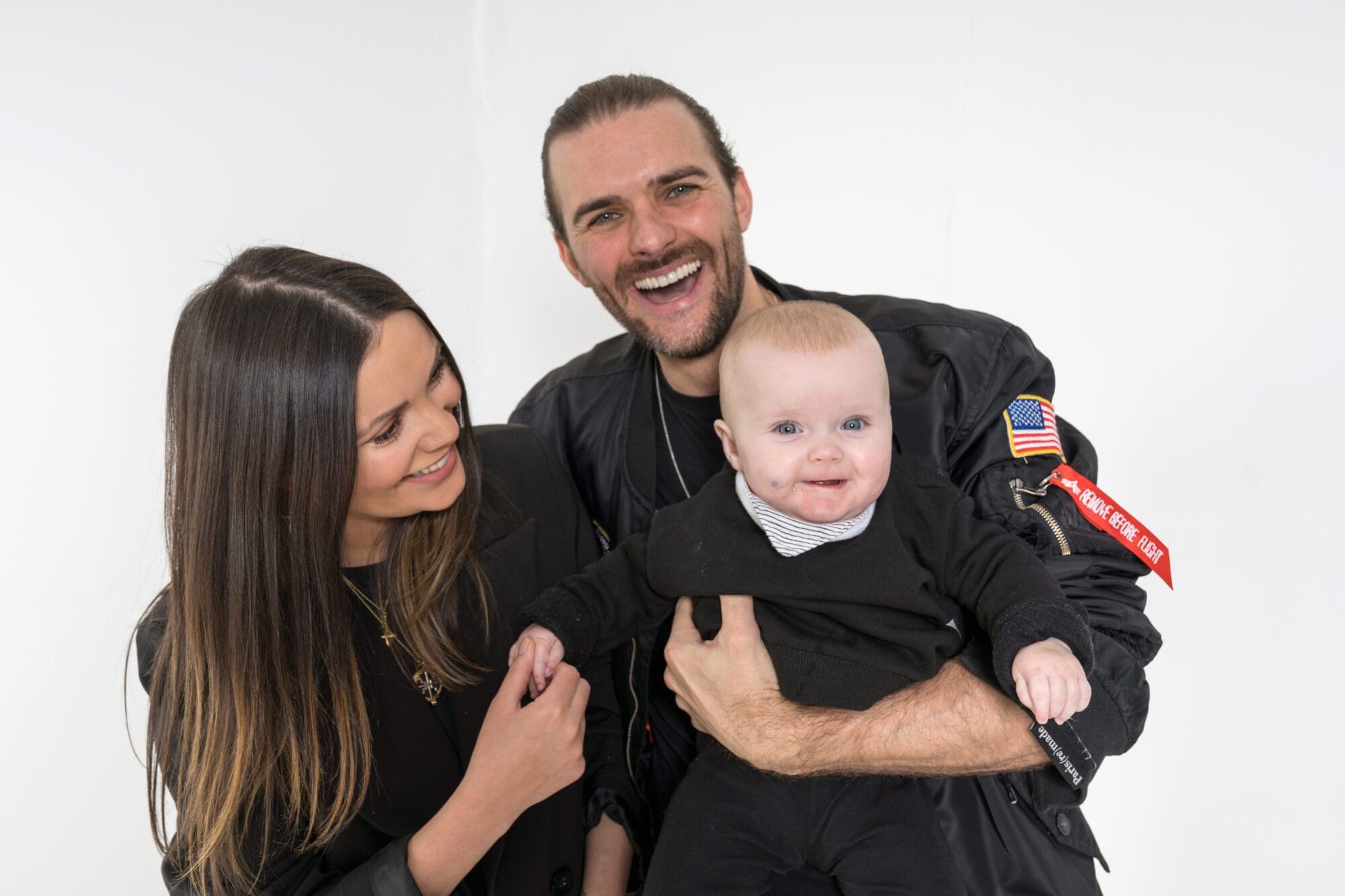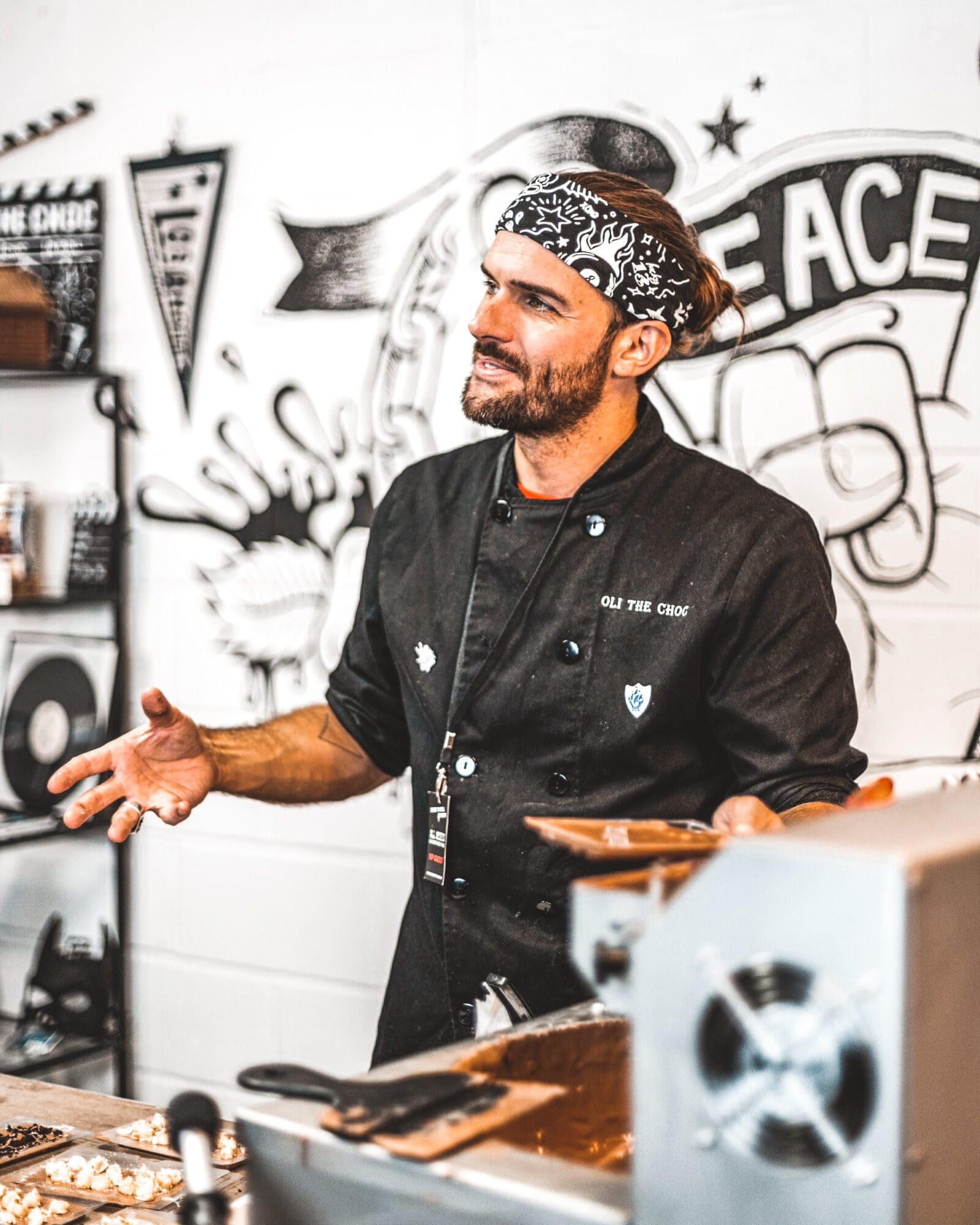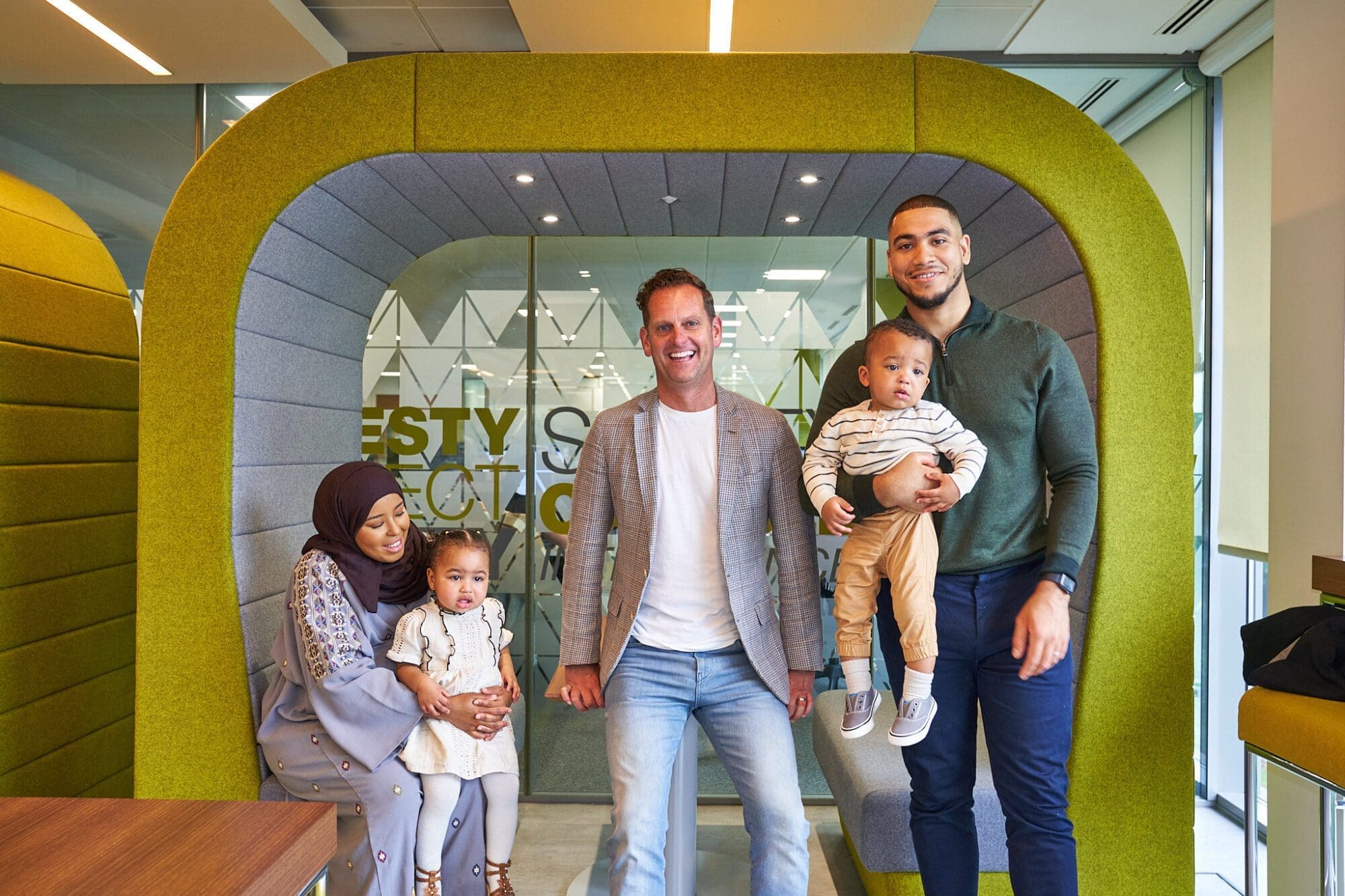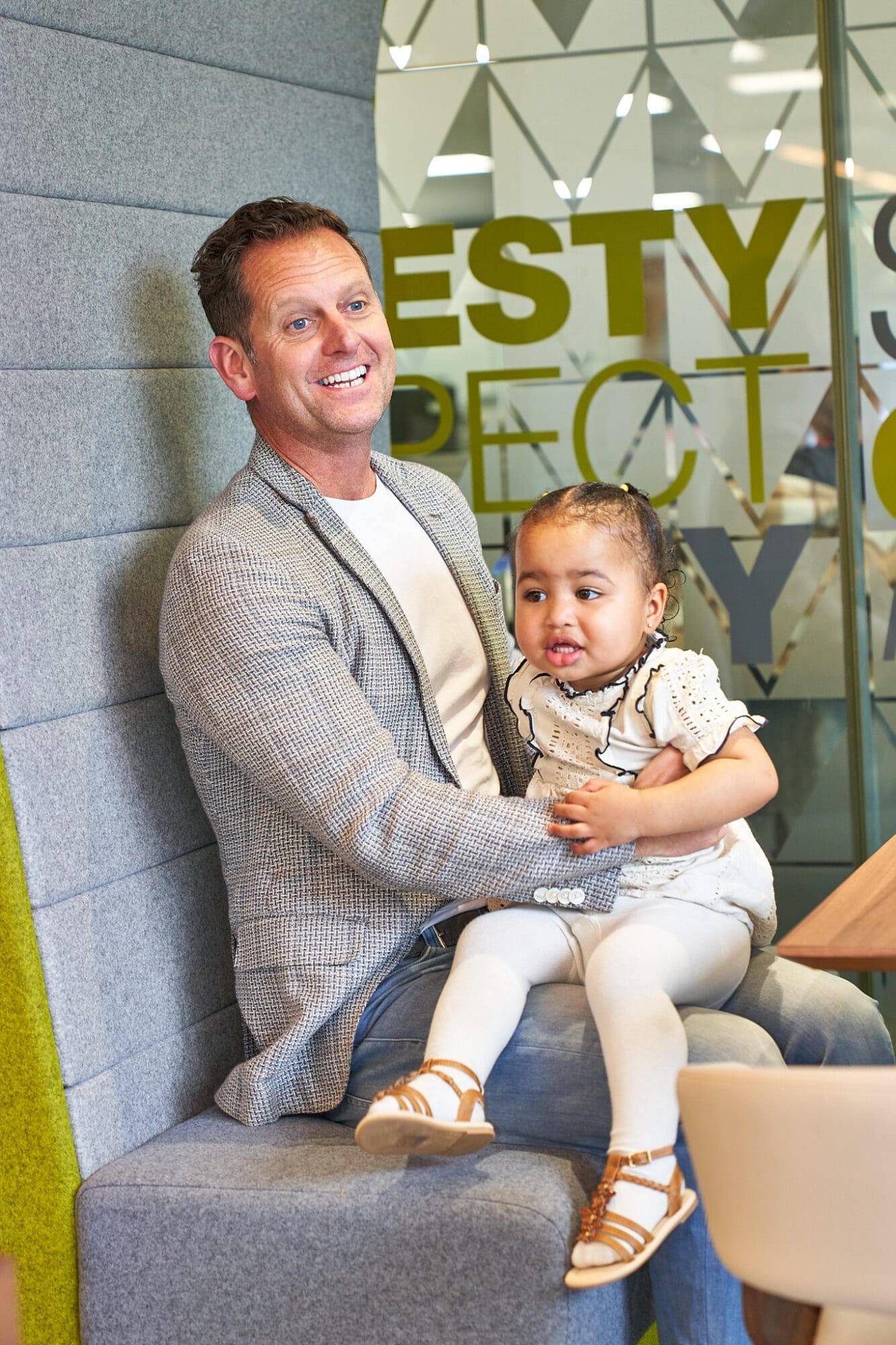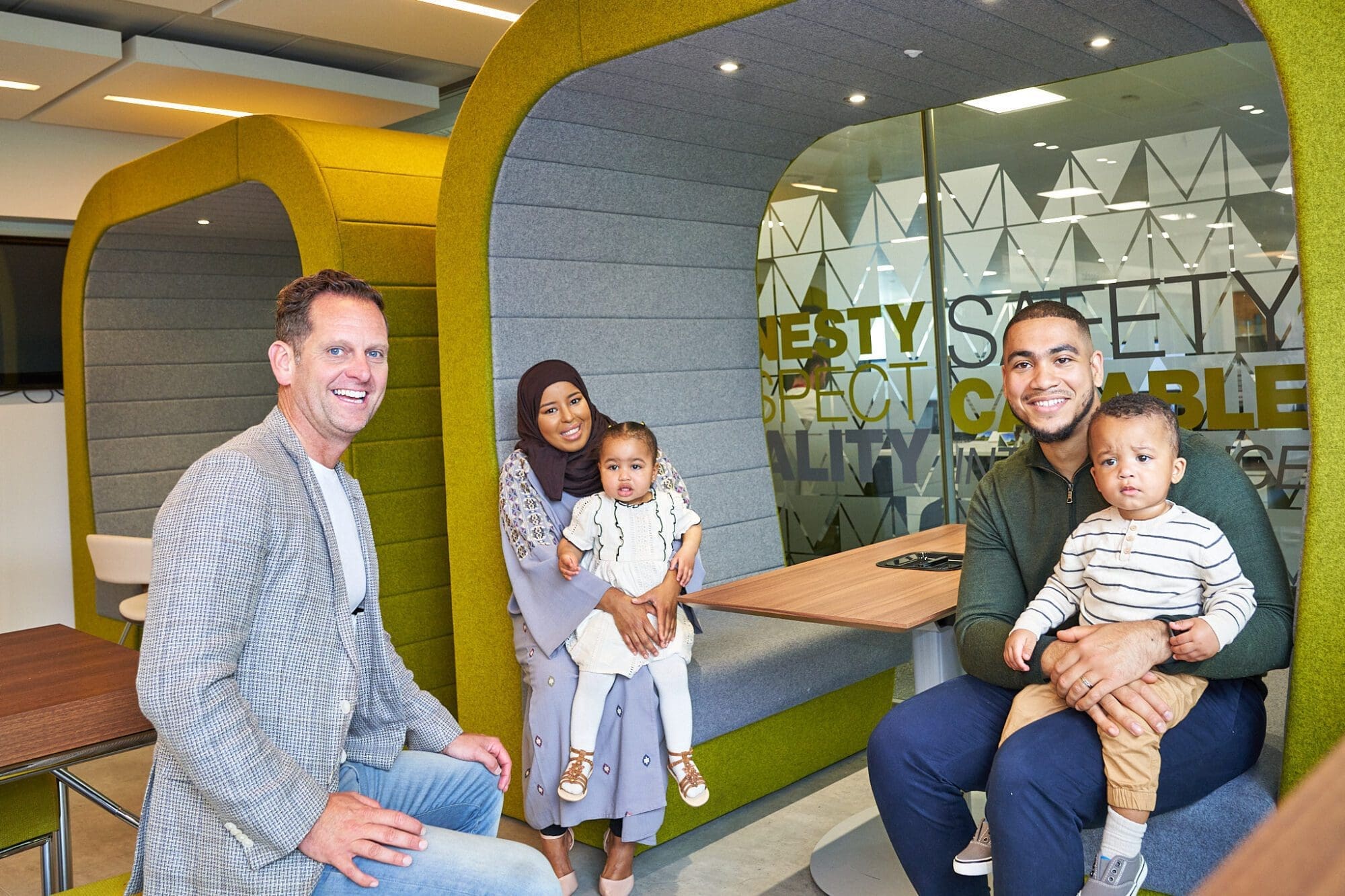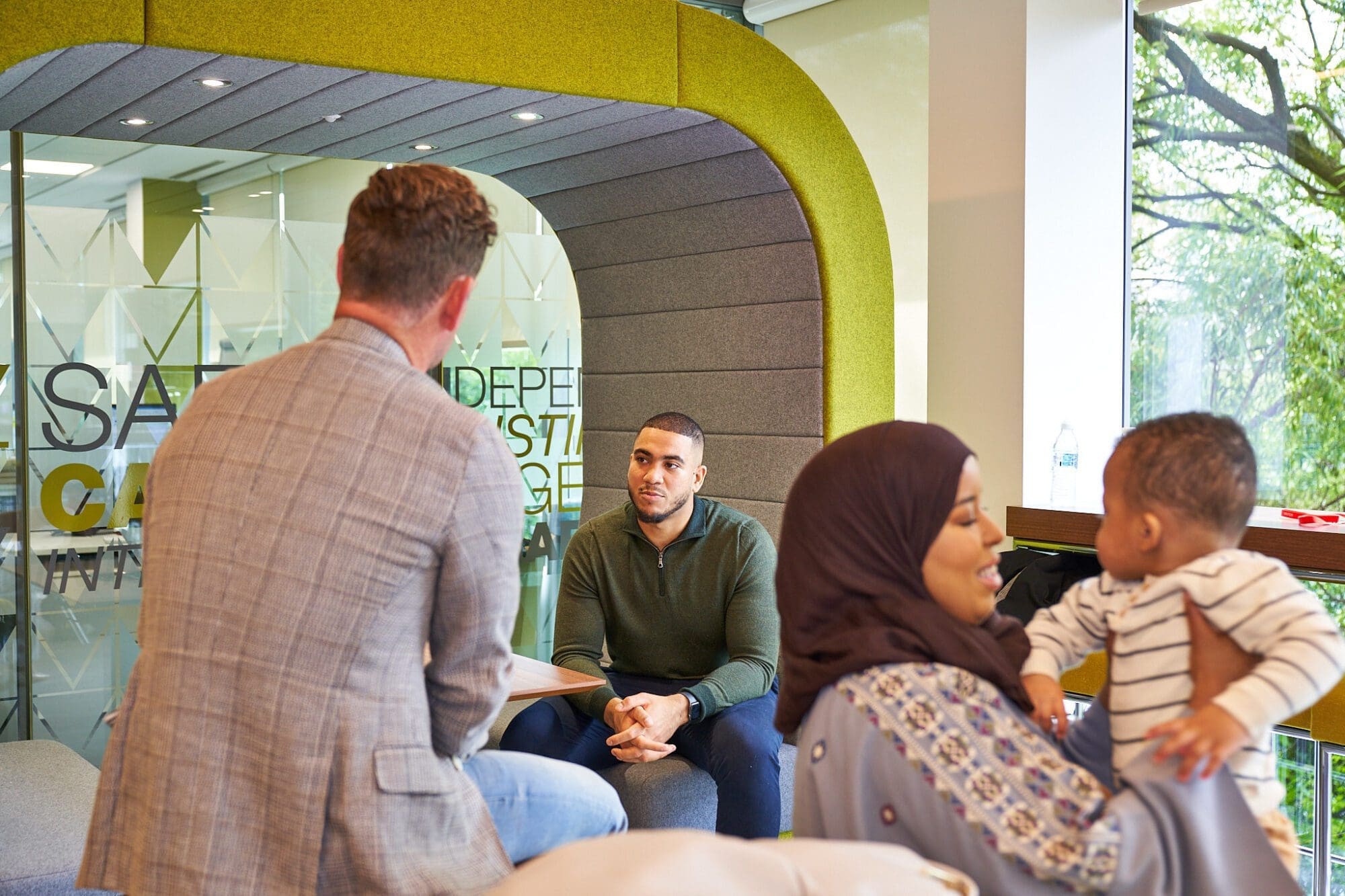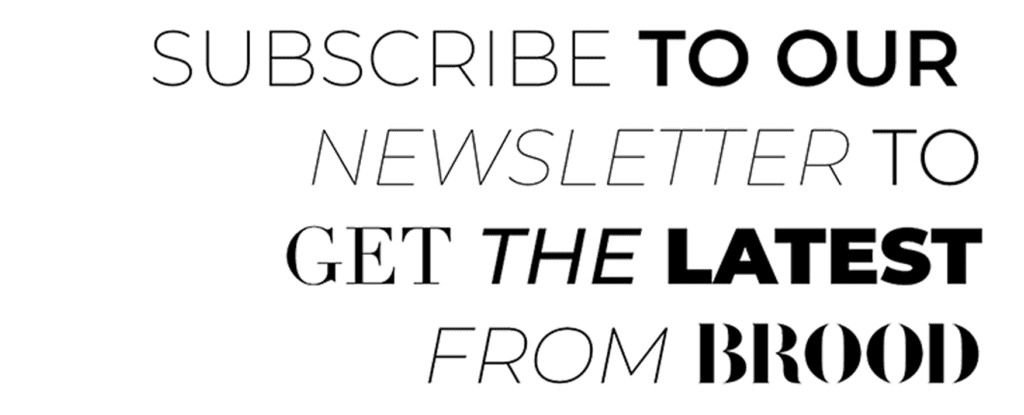“IT DOESN’T MATTER WHAT COUPLES IN SOCIETY DO, IF THEY AGREE TO ROLLING AROUND IN THEIR HIPPY BED, LETTING THEIR BABY SUCK ON THEIR T**S UNTIL YOU’RE BOTH 60, IF THAT’S WHAT YOU WANT – NO ONE SHOULD JUDGE ANYONE, I JUST THINK IT’S REALLY IMPORTANT TO AGREE ON HOW YOU WANT TO RAISE YOUR KID BEFOREHAND.”
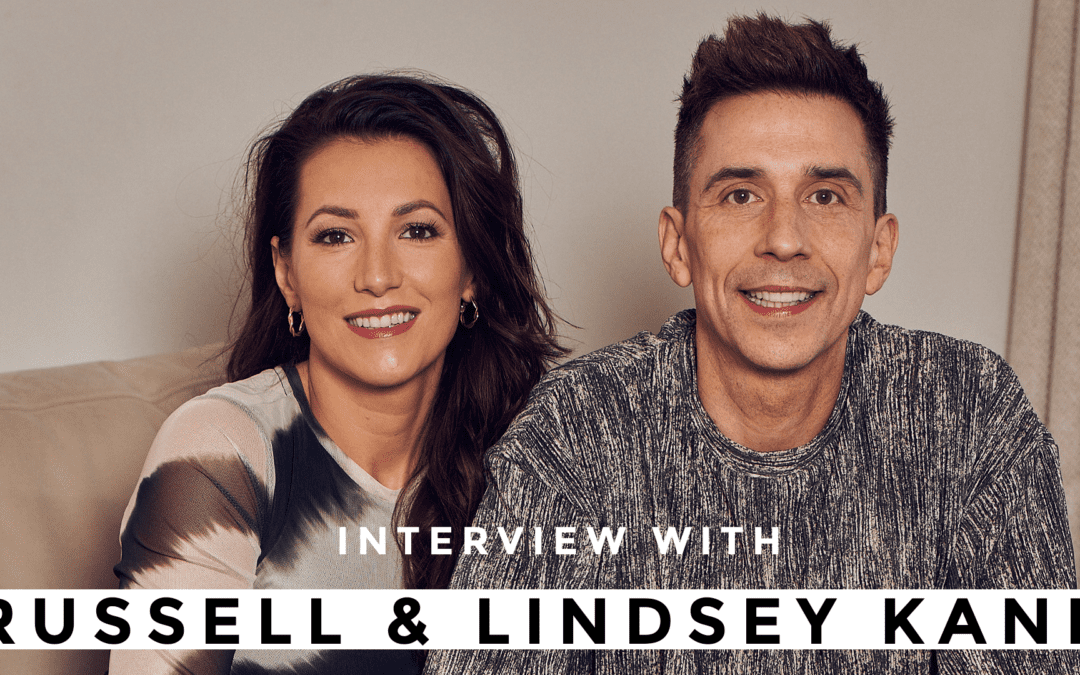
Russell Kane & Lindsey Kane
Interview: Russell Kane & Lindsey Kane
__________________________________
“It doesn’t matter what couples in society do, if they agree to rolling around in their hippy bed, letting their baby suck on their t**s until you’re both 60, if that’s what you want – No one should judge anyone, I just think it’s really important to agree on how you want to raise your kid beforehand.”
Russell Kane is a multi-award-winning comedian, presenter, actor, author, and scriptwriter. He is a regular on Channel 4, BBC, and ITV. Russell made history in 2010 as the first comedian to win both the Edinburgh Comedy Award and Melbourne Comedy Festival’s Barry Award in one year. He met his wife, Entrepreneur Lindsey Kane, who was a Make-Up Artist working in TV at the time, when he was 35, After in-depth conversations about having children very early into their relationship and making sure they shared the same views as to how they would want to raise a child, the couple went on to have their daughter, Minna, who is now 8 years old. Stepping back from her career as an MUA whilst she was pregnant and striding into the world of business, Lindsey has carved out a name for herself as a knowledgeable and successful businesswoman, with her latest business, a supplement brand – JOLT – being a joint venture with her husband and one of their best friends Daniel.
We sat down with Russell and Lindsey at their home in Wilmslow, which they share with their daughter, their two dogs and three cats, and chatted about how becoming parents has changed them and what effect that has had on their careers.
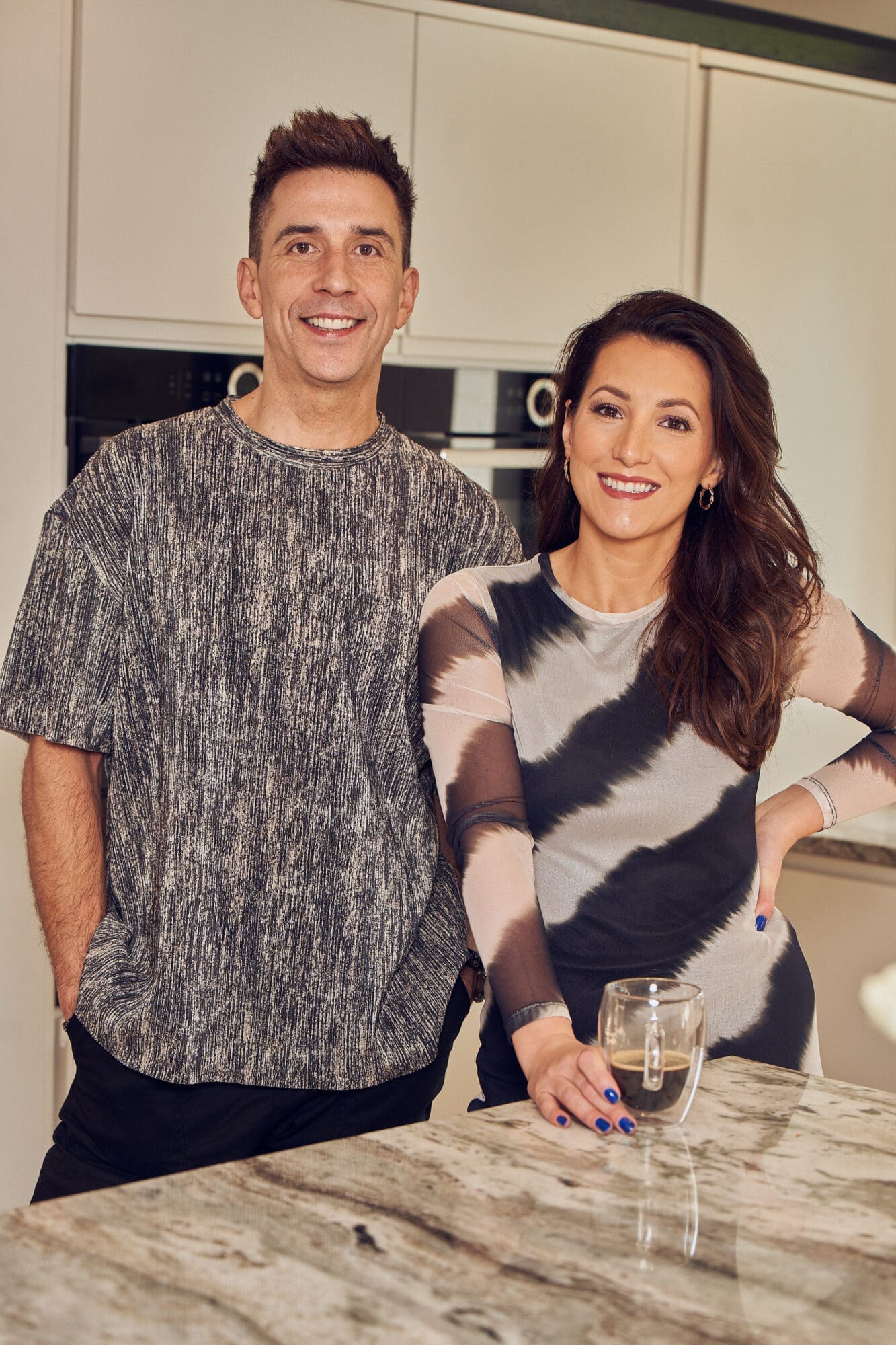
Russell Kane & Lindsey Kane by Tom Pitfield © BROOD Magazine
Where were you in your career when you became a parent and how did you find the transition into parenthood?
Russell – “I was fully established really, in fact, I was at the point where I was like if I don’t have kids I’m not that bothered, because I really like animals, I really like going out, I really like travel, friends, I like strangers. At the time, I didn’t have any nephews or nieces as my brother is not very well. So I didn’t have a ‘burning boyvery’ as I call it, an aching inside [for a child.] I passed 35 and I thought, if it didn’t work out, don’t worry about it. Then I met Lindsey when I was exactly 35. We were on the dance floor and I said to her what I’ve just said [above] ‘If it doesn’t happen, it’s no big deal to me.’ And she replied, well, that is definitely something I do want, so there’s no point in us taking this any further! I’m not saying straight away, but I’m not waiting 10 years. So we basically had a rather grown-up discussion when we met where we compromised on the ages we’d want to be before we had a child and we ended up meeting in the middle. Lindsey basically had our daughter Minna 3 years sooner than she would have liked to, and I was probably 3 years older than I would have liked to have been. We discussed it early on, in the same long-handed way that we discussed where the baby would sleep and how we would even approach parenting before Lindsey was even pregnant. It was really important for me to agree on it all before. We were holidaying somewhere like Mauritius and we kept sneaking into a villa with a private pool and swimming at night. When Lindsey said shall we try for a baby at Christmas? But I’d said, we do not miss one month’s contraception until we agree on a few things ‘Where that baby will be sleeping. At what age will the baby be sleeping on its own? At what age do you want the baby to go through the night without one of us having our lives ruined?’ [We laugh] So until we have written this down and agreed to it, I will remain childless’ [he reminisces]
It doesn’t matter what couples in society do, if they agree to rolling around in their hippy bed, letting their baby suck on their t**s until you’re both 60, if that’s what you want – No one should judge anyone, I just think it’s really important to agree on how you want to raise your kid beforehand.”
Lindsey – “Yeah, and I was a make-up artist working in TV, doing 12-14 hour days, and when I was pregnant I didn’t want to be standing up on my feet for so long and working the long and irregular hours. I wanted something with structure and routine and that is when I decided to start an online business so that I could work from home and it meant that whilst Russell was touring I could base myself anywhere. That is when I launched a lash business – because at the time it wasn’t a saturated market there was just a small selection that you could buy in the shops at the time, and I wanted to offer a variety of styles at cheaper prices for make-up artists in particular, so I set that up and launched it whilst I was pregnant, and within the first year of being a mum, trying to juggle everything – basically trying to be superwoman!”
You say you wanted to make sure that you were on the same page when it came to parenting, what were some of the things that you decided on and how did you find implementing them?
Russell – “Our lives are very different so it was always important to adapt her sleep pattern around what we needed. Like today, I woke up at 10 am and I fell asleep at 2 am – there’s no point having a child and then having to sleep in the spare room? I can’t do stand up without sleep, so I think it’s important as a working parent that they fit around your life. I’m extremely lucky with Lindsey as a parent. She was very open-minded about me making suggestions when we were having our daughter because my mum was a nanny and a childminder who knew all the tricks of the trade. So our aim with any baby was always to have them sleeping 8 hours by 8 weeks, and 12 hours by 12 weeks. Which is what my mum’s target was with any child that came through the door. ”
Lindsey – “Yeah she was 6 weeks, doing 6 hours in the night, then at 12 weeks she was doing 12 hours through the night. We did the Gina Ford [method] and it is controversial but for me, I had no idea about parenting and so it was a bit of an instruction manual whereas some women don’t like it because she’ll be like, ‘right, whilst the baby sleeps, have a nap or have a snack or…’ basically telling you what to do. Whereas I needed that reminder and it helped.”
Russell – “I wouldn’t say it was all Gina Ford [method] we did read lots of books. But we made a conscious effort that when the baby was around 4-5 months old, put the child to bed and sit down to have dinner and talk about our day. When people talk about happy babies and breastfeeding, they tend to forget two of the most important things. No. 1, a completely sane and happy mother (above breastfeeding) and number two, a happy working partnership, whether that be a man and a woman, woman and a woman, man and a man, whatever. They’re more important than anything and they tend to get put to the bottom. [He imitates the nurse again] “No, no, the baby has to suck on her t*t until she’s 7, you go and masturbate in the spare room, dream of a holiday to Bangkok and leavin’ her.” – Yeah, that’s what the baby needs? he despairs.” No, it f***ing doesn’t actually [answering the question as himself] in my opinion.
So we mapped it [with having a baby] because of the lifestyle we already had. Doesn’t matter if your plan goes wrong, just have one. Like I’m doing a stand-up tonight and I have 70 mins of material, but I don’t give a s**t if I don’t use any of it cause I go off and improvise or the lights explode or something goes wrong – but that 70 mins is always there, that little birth plan if you like, but it’s important to have one.”
Lindsey – “…and not getting bogged down if it doesn’t go to plan.”
As you feel so strongly about things like that, and you discussed your plan on being parents before you had a child, looking back now, has there been a time where you have had to compromise?
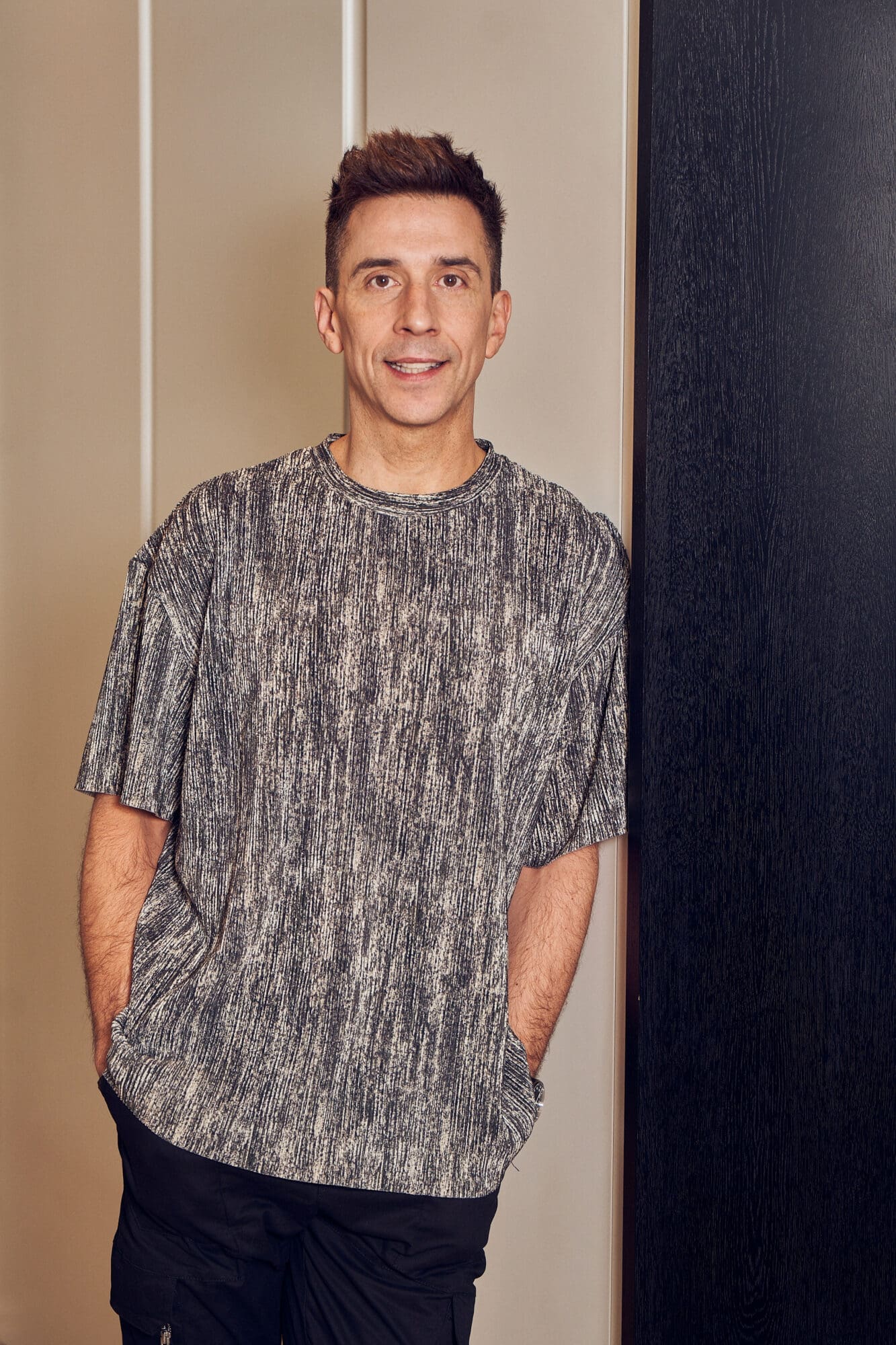
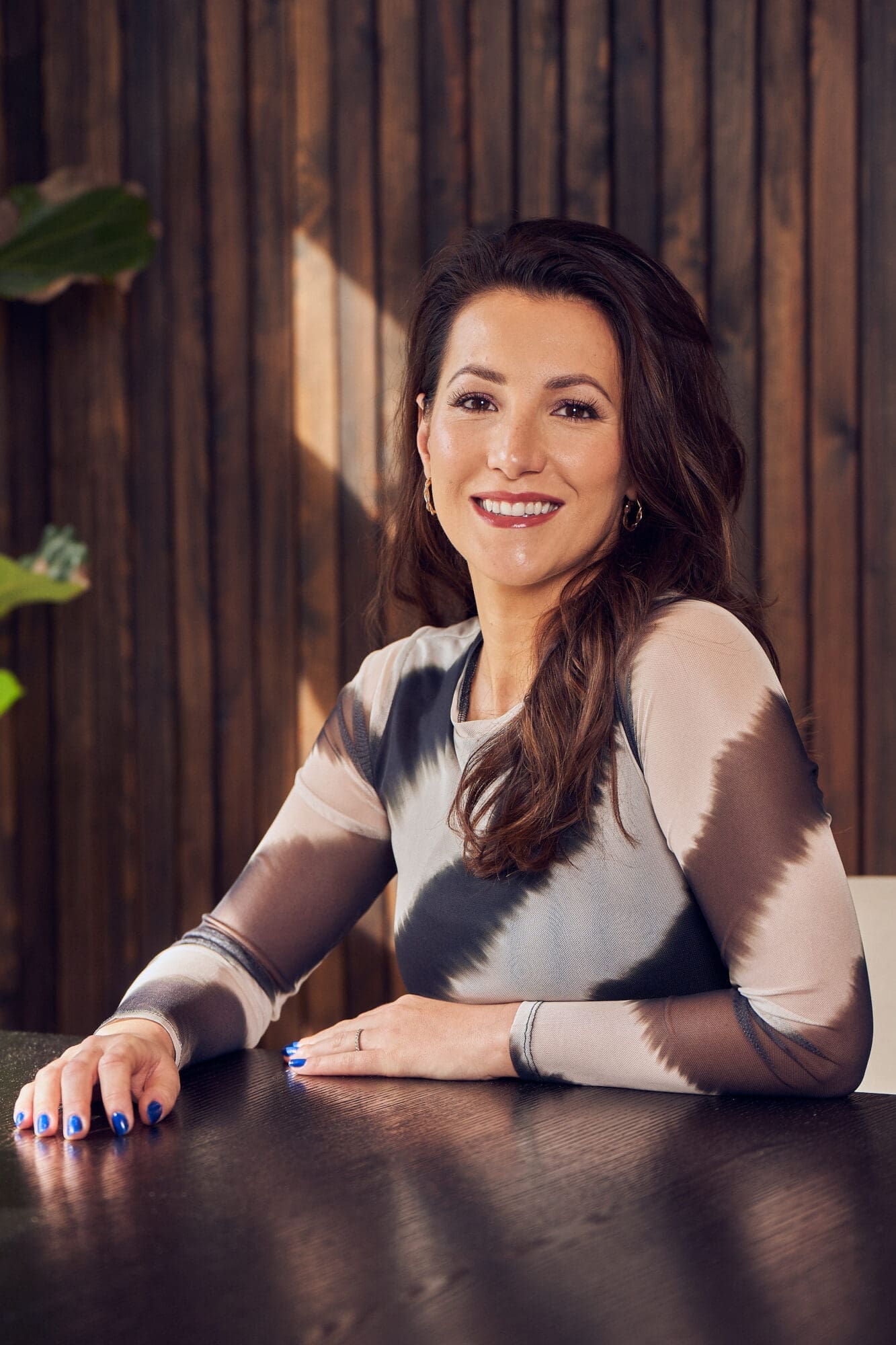
Russell – “Only when we got to about 5 years old I would say. Up until last year, our daughter had never been in our bedroom after she’d gone to sleep without asking first, but she didn’t even know that that was a thing. We still have a child monitor now and use it like a walkie-talkie system. But I just wouldn’t roll back on the sleep thing because of my job. I come from… (without getting my violin out) My first home was actually a women’s hostel for women and babies, we were homeless and my dad tried to get a council flat. So I’ve started from so far down the food chain, I didn’t want to compromise on that sleep and that has a knock-on effect [he puts on a different voice] ‘hey lets cut sleep, do a shit tour and hope that my career will be ok!’ – Absolutely not, he answers himself. It’s important to these guys [Lindsey and their daughter] that I do that as well. Well, not now Lindsey’s about to turn into a billionaire or whatever she’s got [he jokes] she doesn’t need me but before that, it was all on me – then if you come from a council house/working-class background, then that pressure is doubled because you feel that you’re going to become a peasant again at any moment and it’ll all be taken away. So I couldn’t even if I wanted to. Even if I wanted to go on holiday [he puts on a voice of one of his friends] “come on holiday man, just put the baby next to you [to sleep]” – I physically wouldn’t be able to do it. It would be like asking someone of faith to eat meat that’s not accepted in their religion. I worship sleep, and sleep is the direct bank account that fuels, that funds, that powers, the act.”
So it didn’t affect your career becoming a parent?
Russell – “I don’t think it did. It probably affected Lindsey’s journey [more] massively because she hadn’t got going enough yet. If anything it enriched it. It made me want to explore different countries and have experiences with them [both]. Before that I was quite happy staying in England, I love England and that’s where I’m known. Although I built a following in Australia by accident, as I went there and won this massive award on my first go so I ended up building a following over there too by accident. But before having Minna, I wouldn’t entertain different countries and cultures. But I’ve just had an inquiry from the Cayman Islands, which I’ll probably say yes to, it’s not all about the money, because we’ll go there and have that experience as a family.”
Lindsey – “Yeah, we’re not really that bothered about materialistic things, for us we are all about the experiences, we love doing them together as much as possible.”
Russell – “Yeah don’t get me wrong we have a nice gaff, but ‘normal’ clothes, a nice watch (but that’s because I used to sell them to rich people to get outta the f*****g ghetto) that’s why I’m hung up on watches but other than that, we are driven by experiences now. Like my car, I have a 1986 BMW and I love it!”
What do you think is the hardest thing about being a working parent?
Lindsey – “I think the hardest thing is trying to find balance. It’s impossible, no one has cracked it, and everyone is just surviving and trying their best. I don’t give myself a hard time, I just always try and remember that I can only do my best – that’s all I can ever do. I think that it’s an amazing thing to teach your kids to go out and work and that things aren’t just given to you on a plate you have to work hard for things, especially because Russell has got a fantastic job and I run a successful business, I don’t want her to just think that she’s just gonna roll out of school and into a job, she’s going to have to prove herself and work hard, but I think the hardest thing really is about finding the balance and trying to be everything to everyone at any one time.”
Russell – “Between 0-18 months it was absolutely fine, I’m not a very masculine-type bloke but I was quite Neanderthal at going away and coming back – I got to do the best bits initially because I had to work. Then we swapped it, Lindsey was on her second business by then. In fact I think Minna was 8 weeks old when Lindsey said “bye bye, see you in a week!” she just went and was gone. I was on my own with my mum and the baby. Then I think when she was 6 months old, I took Minna abroad on my own with my mum. So I enjoyed all that, having a baby strapped to my back, nappies and all that s**t but when it changed was when I realised the type of connection I was going to have with Minna as her personality changed, it was like a Disney love and it became really hard to leave her all of a sudden. So I think a lot of my female friends had like 3 months [with their baby], whereas I got like two years and it’s worse now because she’s 8. I know what I can bring to her life when I’m here, we’re so connected so it’s hard leaving her. I know a lot of dads are out at 7 in the morning and back at 7 in the evening so get the top and tail of their time, and I get weeks and weeks of holidays with her. But I also do what a lot of dads don’t do and just disappear for four days, back for two days then disappear again for four days… and its a long time and when you’re doing that two three times a month… [it’s hard] but we’re adults [gesturing at Lindsey,] we can FaceTime, we can make up for it, whereas Minna is a disappearing egg timer. Soon she’ll be 9, 10, 11, 12 then ‘f**k off you’re embarrassing me now’. So yeah, I do struggle with that but at the end of the day, I’ve got a job. I don’t think Lindsey does though, I think she skips out the door with her hand luggage to her business conference, he jokes.” [we all laugh]
Lindsey – “No, I do find it difficult, but I am really enjoying the process of watching her grow into her own person…”
Russell – “I know, but you don’t struggle emotionally as much or pine when you’re away at a hotel as much I do. That started at 18 months when she started speaking to me and got this personality, I was like s**t, I don’t wanna go to work – I’ve never had that before. Don’t get me wrong, I love work, and once I’m on stage it’s the best hour of my day. There’s something religious about it, being picked out, knowing there are however many billions of people on the planet and 150,000 of them are coming to see me over the next 18 months, that goes beyond belief, I’ve created something amazing – what privilege right? ….So that hour [being on stage] is fine… but I’ve got to get there. 4 hours there, 4 hours back, 8 hours sometimes sat in a room on my own whilst my child is without me, I f*****g hate that.”
What do you use as a coping mechanism to deal with that so it doesn’t affect your work?
Russell – “I numb myself with Netflix or TV. I can’t drink or anything like that because I’m going on stage, thank god. So I live really clean, I do that and I do lots of exercise. I’ll FaceTime and phone as much as I can in between. But she’s just slightly too young where it’s like [taking off Minna] “yeah yeah, I gotta go…. I got a boogie.” It’s holding her attention. But that was the biggest surprise for me, finding it difficult being away from her. ‘Do you remember it switching?’” [Russell turns to ask Lindsey]
Lindsey – “Yes, I do.”
Russell – “I think it’s a common male thing actually, well actually, that’s not fair actually. I’ve got friends who are like, proper hard nut geezers, every single one of them when they themselves had a baby, scooped them up and sobbed on the floor, my life was permanently changed – and I just thought, that was going to be me. I just assumed I was the most emotional out of all of them.
Don’t get me wrong I cried, but I was like, great, back to work now, I’m f*****g fine, great see ya later! I was like, ‘Oh s**t, maybe I’m some kind of serial killer’, but the truth is I got there but it was just delayed. But that happens to some women as well. We have all these stereotypes of how you should act. Lindsey was the same… [he chuckles, asking are you ok with me saying this..?] I’ll never forget, Lindsey had a c section and the baby came out and they were like, ‘Would you like to hold your baby’ and she said ‘Nah, not really’” [we all laugh]
Lindsey – “No because, To be fair, I was that traumatised from the c-section. She didn’t turn and she was breach. So I had to have a c-section instead of a water birth and I didn’t want to hold her straight away as I was very much in a meditative state and I just wasn’t ready yet. I went very child-like, all I wanted was my mum.”
Russell – “That’s why I stepped in and did skin to skin. But I bet Lindsey isn’t the only woman to be like, “can you just give me ten f*****g minutes.’ I know on Instagram I’m supposed to sob, with amniotic fluid on my t*t and smiling to the camera whilst I take away my child’s digital consent in its first seconds of life! [We all laugh] But actually, I just need time and you see that guy over there, he’s the dad, let him do something for an hour seen as though he’s just planned his Deliveroo whilst they pulled a baby from my guts!” But to me her saying that wasn’t controversial, there’s two of you. Some people aren’t lucky enough, some people are single parents, some women die during childbirth – so sometimes there’s just one [parent] so if there are two of ya, just use all your resources and I was up for that! I was happy as a pig in s**t for an hour whilst they sorted her out. Doing the first nappy, first cuddle. I felt privileged and grateful, how many blokes get to say they held their baby first before the woman. So Lindsey felt a complete set of different emotions and I had felt a completely different set of emotions. None of the stuff we were told we would feel.”
Lindsey – “I felt very isolated and I wasn’t feeling these emotions I was told I was supposed to feel. And on top of that, we had a few friends that gave birth at similar times and they too had c-sections. But they were walking two days afterwards whereas I couldn’t walk or sit up straight barely, for two weeks. It was hard as you compare yourself to others.”
Russell – “But it’s crazy to think that I struggle more now (with her as an 8 year old) more than I did when she was 2. Surely they need you more at 2 than 8 but I do?
Who was it who said it now? [he rhetorically asks] Rob Beckett says he wishes every gig he did was at the end of his road. He opens one door and he’d be in Torquay then he’d open another and he’d be in Glasgow. Because it’s the travelling part of being a standup. See today’s a short day but I will do 8 hours travelling with an hour on stage.”
It’s not easy particularly for women to admit they feel that way, now you come out of the other side of that Lindsey, what is your favourite thing about being a parent?
Lindsey – “I will admit I really struggled with the first few years of being a parent and that was down to me losing myself or I should say me feeling lost and not understanding where that feeling of being lost comes from and now I’ve worked through that through self-reflection and therapy work and I think my favourite thing about being a parent actually is that she has been a real teacher for me and made me realise that she is her own person, and made me realise what projection is put on us all from when we are young children. She has taught me that she is, well most kids are born with a certain level of confidence and that it’s everyone around them that projects and puts things on them that alter their confidence or impacts them later in life. So I do think that my favourite thing is that she teaches me how to be patient and she’s taught me how to listen and absorb what people are saying and to look at things from a different perspective.”
What inspired you to start JOLT and how have you found the dynamics of being married and working together?
Lindsey – “For me in a nutshell, when I had Minna I had this overwhelming fear of mortality. I was petrified of dying. I was very lost in my career but I didn’t understand what that feeling was and I was very unfulfilled in what I was doing. I just had a real panic about ‘Is this it?’ ‘I’m a mum now, what am I going to do now, is this it?’ When I was in my 20s, I was diagnosed with a lung disease called Bronchiectasis along with chronic sinusitis which I’d had all of my life but I’d been misdiagnosed and I’d never taken the disease as serious. Before then, I had just sort of cracked on with life and thought ‘well, other people have it worse than me’ It wasn’t until I had had my child that I thought ‘I have a lung disease and terrible lung health’ along with (at the time) covid hit so I thought its about time I ought to start looking after my health better and looking into ways I can improve my lifespan, health in general and lung health. I’d been watching Russell take care of his health and how he’d completely changed his energy, the way he looked, everything on a cellular level. I’d watched him take evidence-based supplements over the years and seen the change and so I started to take a lot of them. They really massively helped reduce inflammation, increase energy, and improve sleep. I think most people are like me and are quite lazy when it comes to supplementation. They want something that’s really convenient and they want something that’s easy to take. Russell then did the podcast diary of a CEO with Steven Bartlett, after that, we were both inundated with messages ‘What does Russell take?’ ‘Where does he get it from?’ ‘What dosage is it? ’ ‘Can I trust it?’ then we were met with replies of ‘Oh, it’s too much hard work.’ ‘I can’t be bothered to take everything.’ That’s when I said do you think people would buy a combined supplement? Everything in one dose? One supplement? Because most people don’t have the time or remember to open a million jars – they just want something that is cost effective, convenient and easy to take, and that’s when JOLT was born.
It feels natural working with Russell. He motivates me, challenges me and makes me look at different perspectives. I really enjoy working with him. We also have a business partner Dan who is also Russell’s best friend from when he was a child. So he’s very involved from an operational point of view and we just all really work well together as a team. We all have what each other needs and it’s amazing going on the journey together.”
Do you find it hard to switch off from your business, and Russell when you are writing new material for a new tour?
Lindsey – “Do you know what, I’m pretty good at setting boundaries. I really prioritise self-care and family so I try to get the majority of the work done when my daughter is at school, then when she finishes school, it’s time to switch to family time, to eat dinner and to have that bit of time together. Sometimes me and Russell will have date night or when we’re indoors watching TV, we watch things together – there are no devices in sight – we put our phones, laptops, and everything away so we’re aware that whatever we’re watching or consuming we’re doing it consciously together. I think that’s really important. A lot of times as couples don’t prioritise date night, they don’t prioritise each other and I think it is really important to do. We do speak creatively about some of the ideas that we have but I do enjoy discussing creative concepts and I let Russell respond about material for his tour!”
Russell – “The first part, no, I could have done the palladium with 5 cameras, and then me and Lindsey can be sat there half an hour later sat on the sofa with a glass of wine laughing at Curb your enthusiasm. I suppose I’m very unusual as a comedian, I don’t have that come down. I come off buzzing, have a wine and then I’m done. Tired, don’t get me wrong. The next morning is when I feel it. It takes me a while to get going as you can see.
The second part of the question, yes all of the time, because that’s part of the job. If something funny happened now, and my trousers fell down during a photo, I’d probably have to take a break to write that up as an idea. But that’s because I need that for the material. Lindsey will sometimes… [he turns to her] it’s more you than me, he points. We’ll be having some family time and she’ll be like, you need to pause and write that down, that’s really funny. So it’s more Lindsey saying it to me because I won’t realise. I just do funny s**t.”
And Lindsey with your work, you have your own goals, your own business, your own dreams too – do you have to compromise, i.e. if Minna is poorly and needs picking up from school, does your work take a back seat compared to Russell’s?
Lindsey – “Well it’s something I knew would always be the case. For me, I had an online business when I had Minna, but I wanted that online business, my own thing for me to grow and focus on. But your [she turns and gestures to Russell] my biggest cheerleader, you;ve always encouraged me and pushed me. It’s only this last year, where I’ve thought, you know what I can now actually do what I want, I’m not locked in a cage, I can be myself. Whereas before I felt I was this watered down version of myself to fit into people’s boxes or moulds. Like now, I think when Minna is a bit older I’d like to go and do a degree. I think I’d be interested in learning. Because I’ve spent the last 20 years living with PTSD from uni and being bullied at school whereas now I’m getting back into improving myself. But to answer your question, it is what it is. It’s just something that most women, traditionally women, but equally I knew what I was getting myself into before I had a child. His work is a priority at that time because he’s the main bread winner and it’s a difficult situation to get out of. Whereas me, on my laptop, and my online business at the time, I can fit in and around and be based anywhere. I had systems in place.”
You can see Russell’s standup tour throughout the Autumn of 2024 and view more about his and Lindsey’s supplement business at www.joltmyworld.com and Instagram @JOLTmyworld @Lindseykane0 @Russell_Kane
KEEP UP TO DATE WITH BROOD:
Related Articles
Russell Kane & Lindsey Kane
A letter to myself: Lisa Morton, business owner and mum of 2
When you run your own business alongside raising your brood, there can be many times where you feel guilty for ‘neglecting’ your children.
Dadpreneur paving the way for good employment
Mr Investa our dadpreneur has achieved Membership status of the Greater Manchester Good Employment Charter a status only achieved by very few businesses.

